This class describes FFT complex array based on fft_complex structure. More...
#include <FFTW_ComplexArray.h>
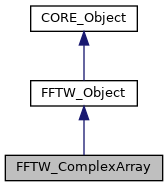
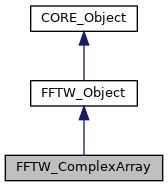
Public Member Functions | |
| FFTW_ComplexArray (void) | |
| create a FFT complex array More... | |
| FFTW_ComplexArray (const tUIndex &n) | |
| create a FFT complex array of size n More... | |
| virtual | ~FFTW_ComplexArray (void) |
| destroy an FFT complex array More... | |
| tFFTWComplex & | operator[] (const tUIndex &i) |
| get the value for reading & writing More... | |
| const tFFTWComplex & | operator[] (const tUIndex &i) const |
| get the value for reading only More... | |
| tFFTWReal & | operator() (const tUIndex &i, const tUSInt &j) |
| get the value for reading & writing More... | |
| const tFFTWReal & | operator() (const tUIndex &i, const tUSInt &j) const |
| get the value for reading only More... | |
| FFTW_ComplexArray & | operator= (const FFTW_ComplexArray &s) |
| copy the values of the complex array More... | |
| FFTW_ComplexArray & | operator= (const CORE_ComplexArray &s) |
| copy the values of the tComplex array More... | |
| FFTW_ComplexArray & | operator= (const CORE_RealArray &s) |
| copy only the real part to s More... | |
| FFTW_ComplexArray & | operator= (const CORE_DoubleArray &s) |
| copy only the real part to s More... | |
| FFTW_ComplexArray & | operator= (const CORE_FloatArray &s) |
| copy only the real part to s More... | |
| FFTW_ComplexArray & | operator= (const tFFTWReal &s) |
| init uniform value More... | |
| FFTW_ComplexArray & | operator= (const tFFTWComplex &s) |
| init uniform value More... | |
| FFTW_ComplexArray & | operator*= (const tFFTWReal &s) |
| multiply the array by s More... | |
| FFTW_ComplexArray & | operator*= (const tFFTWComplex &s) |
| multiply the array by s More... | |
| FFTW_ComplexArray & | operator*= (const FFTW_ComplexArray &s) |
| make the product term by term More... | |
| FFTW_ComplexArray & | operator/= (const tFFTWReal &s) |
| divide operator More... | |
| FFTW_ComplexArray & | operator+= (const tFFTWReal &s) |
| add s to the array More... | |
| FFTW_ComplexArray & | operator+= (const tFFTWComplex &s) |
| add s to the array More... | |
| FFTW_ComplexArray & | operator+= (const FFTW_ComplexArray &s) |
| add s to the array More... | |
| FFTW_ComplexArray & | operator-= (const tFFTWReal &s) |
| sub s to the array More... | |
| void | clear () |
| clear the vector More... | |
| void | setSize (const tUIndex &n) |
| set size of the array More... | |
| void | fitToSize () |
| set the capacityto size More... | |
| void | copy (const FFTW_ComplexArray &f) |
| copy the complex array More... | |
| void | copy (const CORE_ComplexArray &f) |
| copy the complex array More... | |
| template<class T > | |
| void | copy (const complex< T > *f, const tUIndex &n) |
| copy the complex array More... | |
| void | copy (const CORE_RealArray &f) |
| copy the real array More... | |
| void | copy (const CORE_DoubleArray &f) |
| copy the double array More... | |
| void | copy (const CORE_FloatArray &f) |
| copy the float array More... | |
| void | initArray (const tReal &f) |
| init uniform value of f More... | |
| void | initArray (const tFFTWComplex &f) |
| init uniform value of f More... | |
| void | setValue (const tUIndex &index, const tFFTWReal &x, const tFFTWReal &y) |
| set the value at index More... | |
| tBoolean | setValuesByReference (const tUIndex &n, tFFTWComplex *array) |
| set the the values by reference More... | |
| virtual tULLInt | getMemorySize () const |
| return the memory size in byte More... | |
| const tFFTWComplex * | getValues () const |
| get values for reading only More... | |
| tFFTWComplex * | getValues () |
| get values for reading or writing More... | |
| const tUIndex & | getSize () const |
| get the size More... | |
| const tUIndex & | getCapacity () const |
| get the capacity More... | |
| void | swap (const tUIndex &i, const tUIndex &j) |
| swap the lines i & j More... | |
| void | multiply (const tFFTWReal &s) |
| multiply the real part of the elements of the array by the scalar s More... | |
| void | multiply (const tFFTWComplex &s) |
| multiply the elements of the array by the complex s More... | |
| void | multiply (const FFTW_ComplexArray &s) |
| make the product of the elements of the array by the corresponding element of the complex array s More... | |
| void | add (const tFFTWReal &s) |
| add scalar s to the real part of the elements of the array More... | |
| void | add (const tFFTWComplex &s) |
| add complex s to the elements of the array More... | |
| void | add (const FFTW_ComplexArray &s) |
| add the array s to This More... | |
| tFFTWReal | norm2 () const |
| compute the square of norm More... | |
| tFFTWReal | norm () const |
| compute the norm More... | |
| tFFTWReal | distance2 (const FFTW_ComplexArray &x) const |
| compute the square of distance of this to x More... | |
| tFFTWReal | distance (const FFTW_ComplexArray &x) const |
| compute the distance of this to x More... | |
| tFFTWReal | fabs (tUIndex &i) const |
| compute the index of the array where the module is max More... | |
| tFFTWReal | fabs (const FFTW_ComplexArray &x, tUIndex &i) const |
| compute the index of the array where the module of the difference with x is max More... | |
| virtual tString | toString () const |
| to string More... | |
| void | getSharedPointer (SP::CORE_Object &p) |
| get the shared pointer of this class into p More... | |
| void | getSharedPointer (SPC::CORE_Object &p) const |
| get the shared pointer of this class into p More... | |
| tString | getClassName () const |
| return the class name of the object More... | |
| tString | getIdentityString () const |
| return the identity string of the object of the form className_at_address More... | |
| tString | getPointerAddress () const |
| return the identity string of the object More... | |
| template<class T > | |
| tBoolean | isInstanceOf () const |
| test if the clas T is an instance of this class More... | |
| tBoolean | isInstanceOf (const tString &name) const |
| test if the object is an instance of className More... | |
Static Public Member Functions | |
| static SP::FFTW_ComplexArray | New () |
| return a FFTW_ComplexArray shared pointer More... | |
| static void | MatrixVectorProduct (const tFFTWReal &alpha, const tUIndex &N, const tFFTWComplex *A, const tFFTWComplex *X, tFFTWComplex *Y) |
| matrix vector product Z:=alpha.Z+A*X More... | |
| static void | setIsMemoryChecked (const tBoolean &v) |
| set if the memory checking is used More... | |
| static void | setOut (SP::CORE_Out out) |
| set the output stream More... | |
| static void | resetOut () |
| reset the output stream More... | |
| static void | setThread (SP::CORE_Thread thread) |
| set the thread More... | |
| static void | resetThread () |
| reset the output stream More... | |
| static CORE_Out & | out () |
| get the output More... | |
| static SP::CORE_Out | getOut () |
| get the output More... | |
| static CORE_Thread & | getThread () |
| get the profilier More... | |
| static const tBoolean & | isMemoryChecked () |
| get if the memory checking is used More... | |
| static tString | getClassName (const tString &identityString) |
| return the class name of the object More... | |
| template<class T > | |
| static tString | getTypeName () |
| get type name More... | |
| static tBoolean | is64Architecture () |
| return true if the machine is a 64 bits machine More... | |
| static tBoolean | is32Architecture () |
| return true if the machine is a 32 bits machine More... | |
| static tString | pointer2String (const void *obj) |
| return the string representation of a pointer More... | |
| static void | printObjectsInMemory (ostream &f) |
| print object in memory More... | |
| static void | printObjectsInMemory () |
| print object in memory in the standart output More... | |
| static tChar | getMaxChar () |
| get the max value for tChar type More... | |
| static tChar | getMinChar () |
| get the min value for tChar type More... | |
| static tUChar | getMaxUChar () |
| get the max value for tUChar type More... | |
| static tUChar | getMinUChar () |
| get the min value for tUChar type More... | |
| static tSInt | getMaxSInt () |
| get the max value for tSInt type More... | |
| static tSInt | getMinSInt () |
| get the min value for tSInt type More... | |
| static tUSInt | getMaxUSInt () |
| get the max value for tUSInt type More... | |
| static tUSInt | getMinUSInt () |
| get the min value for tUSInt type More... | |
| static tInt | getMaxInt () |
| get the max value for tInt type More... | |
| static tInt | getMinInt () |
| get the min value for tInt type More... | |
| static tUInt | getMaxUInt () |
| get the max value for tUInt type More... | |
| static tUInt | getMinUInt () |
| get the min value for tUInt type More... | |
| static tLInt | getMaxLInt () |
| get the max value for tLInt type More... | |
| static tLInt | getMinLInt () |
| get the min value for tLInt type More... | |
| static tULInt | getMaxULInt () |
| get the max value for tULInt type More... | |
| static tULInt | getMinULInt () |
| get the min value for tULInt type More... | |
| static tLLInt | getMaxLLInt () |
| get the max value for tULInt type More... | |
| static tLLInt | getMinLLInt () |
| get the min value for tLLInt type More... | |
| static tULLInt | getMaxULLInt () |
| get the max value for tULLInt type More... | |
| static tULLInt | getMinULLInt () |
| get the min value for tULLInt type More... | |
| static tFloat | getMaxFloat () |
| get the max value for tFloat type More... | |
| static tFloat | getMinFloat () |
| get the min value for tFloat type More... | |
| template<class T > | |
| static T | getEpsilon () |
| get the epsilon value for T type More... | |
| template<class T > | |
| static T | getInfinity () |
| get the infinity for T type More... | |
| static tFloat | getFloatEpsilon () |
| get the epsilon value for tFloat type More... | |
| static tFloat | getFloatInfinity () |
| get the infinity value for tFloat type More... | |
| static tDouble | getMaxDouble () |
| get the max value for tDouble type More... | |
| static tDouble | getMinDouble () |
| get the min value for tDouble type More... | |
| static tDouble | getDoubleInfinity () |
| get the infinity value for tFloat type More... | |
| static tDouble | getDoubleEpsilon () |
| get the epsilon value for tDouble type More... | |
| static tLDouble | getMinLDouble () |
| get the min value for tLDouble type More... | |
| static tLDouble | getMaxLDouble () |
| get the max value for tLDouble type More... | |
| static tLDouble | getLDoubleEpsilon () |
| get the epsilon value for tLDouble type More... | |
| static tDouble | getLDoubleInfinity () |
| get the infinity value for tDouble type More... | |
| static tIndex | getMaxIndex () |
| get the max value for the array/vector indexing type More... | |
| static tIndex | getMinIndex () |
| get the min value for the array/vector indexing type More... | |
| static tUIndex | getMaxUIndex () |
| get the max value for difference the array/vector indexing type More... | |
| static tUIndex | getMinUIndex () |
| get the min value for difference the array/vector indexing type More... | |
| static tFlag | getMaxFlag () |
| get the max value for the tFlag type More... | |
| static tFlag | getMinFlag () |
| get the min value for the tFlag type More... | |
| static tUInteger | getMaxUInteger () |
| get the max value for the unsigned integer type More... | |
| static tUInteger | getMinUInteger () |
| get the min value for the unsigned integer type More... | |
| static tInteger | getMaxInteger () |
| get the max value for the integer type More... | |
| static tInteger | getMinInteger () |
| get the min value for the integer type More... | |
| static tReal | getMaxReal () |
| get the max value for the real type More... | |
| static tReal | getMinReal () |
| get the min value for the real type More... | |
| static tReal | getRealEpsilon () |
| get the eps which is the difference between 1 and the least value greater than 1 that is representable. More... | |
| static tReal | getRealInfinity () |
| get the infinity value More... | |
| template<class T > | |
| static T | computeEpsilon () |
| compute epsilon More... | |
Static Public Attributes | |
| static const tSInt | FORWARD =-1 |
| static const tSInt | BACKWARD =1 |
Protected Member Functions | |
| void | setThis (SP::CORE_Object p) |
| set this weak shared pointer called toDoAfterThis setting method More... | |
| virtual void | toDoAfterThisSetting () |
| method called after setThis() method this method can oly be called once. More... | |
Private Member Functions | |
| SP_OBJECT (FFTW_ComplexArray) | |
| void | desallocate () |
| desallocate the memory More... | |
| void | allocate (const tUIndex &cap) |
| allocate the memory if the array More... | |
Private Attributes | |
| tFFTWComplex * | mValues |
| tUIndex | mSize |
| tUIndex | mCapacity |
| tBoolean | mIsPrivateAllocated |
Detailed Description
This class describes FFT complex array based on fft_complex structure.
- Version
- 1.0
Constructor & Destructor Documentation
◆ FFTW_ComplexArray() [1/2]
| FFTW_ComplexArray::FFTW_ComplexArray | ( | void | ) |
◆ FFTW_ComplexArray() [2/2]
| FFTW_ComplexArray::FFTW_ComplexArray | ( | const tUIndex & | n | ) |
◆ ~FFTW_ComplexArray()
|
virtual |
Member Function Documentation
◆ add() [1/3]
| void FFTW_ComplexArray::add | ( | const tFFTWReal & | s | ) |
add scalar s to the real part of the elements of the array
- Parameters
-
s the scalar factor
References mSize, OMP_GET_THREAD_ID, OMP_GET_THREADS_NUMBER, OMP_PARALLEL_PRIVATE_SHARED_DEFAULT, tFFTWComplex, tUIndex, and tUInteger.
Referenced by operator+=(), operator-=(), and swap().

◆ add() [2/3]
| void FFTW_ComplexArray::add | ( | const tFFTWComplex & | s | ) |
add complex s to the elements of the array
- Parameters
-
s the complex factor
References mSize, OMP_GET_THREAD_ID, OMP_GET_THREADS_NUMBER, OMP_PARALLEL_PRIVATE_SHARED_DEFAULT, tFFTWComplex, tUIndex, and tUInteger.
◆ add() [3/3]
| void FFTW_ComplexArray::add | ( | const FFTW_ComplexArray & | s | ) |
add the array s to This
- Parameters
-
s the complex array to add
References getSize(), mSize, OMP_GET_THREAD_ID, OMP_GET_THREADS_NUMBER, OMP_PARALLEL_PRIVATE_SHARED_DEFAULT, tFFTWComplex, CORE_Integer::toString(), tUIndex, and tUInteger.

◆ allocate()
|
private |
allocate the memory if the array
- Parameters
-
cap capacity of the array allocate an array of size cap+1
References desallocate(), FFTW_ALLOC, mCapacity, mIsPrivateAllocated, mSize, mValues, null, OMP_GET_THREAD_ID, OMP_GET_THREADS_NUMBER, OMP_PARALLEL_PRIVATE_SHARED_DEFAULT, tFFTWComplex, CORE_Integer::toString(), tUIndex, and tUInteger.
Referenced by copy(), fitToSize(), operator-=(), and setSize().


◆ clear()
|
inline |
clear the vector
References desallocate(), and null.
Referenced by FFTW_FFT::clear().


◆ computeEpsilon()
|
inlinestaticinherited |
compute epsilon
- Returns
- the epsilon value eps=10^{-p/3} where p is defined by getEpsilon()=10^{-p}
◆ copy() [1/6]
| void FFTW_ComplexArray::copy | ( | const FFTW_ComplexArray & | f | ) |
copy the complex array
- Parameters
-
f the array to copy
References getSize(), mValues, OMP_GET_THREAD_ID, OMP_GET_THREADS_NUMBER, OMP_PARALLEL_PRIVATE_SHARED_DEFAULT, setSize(), tFFTWComplex, tUIndex, and tUInteger.
Referenced by FFTW_FFT::copy(), operator=(), setSize(), and MATH_ElementaryMultiLevelsToeplitzMatrix::vectorProductInSpectralSpace().

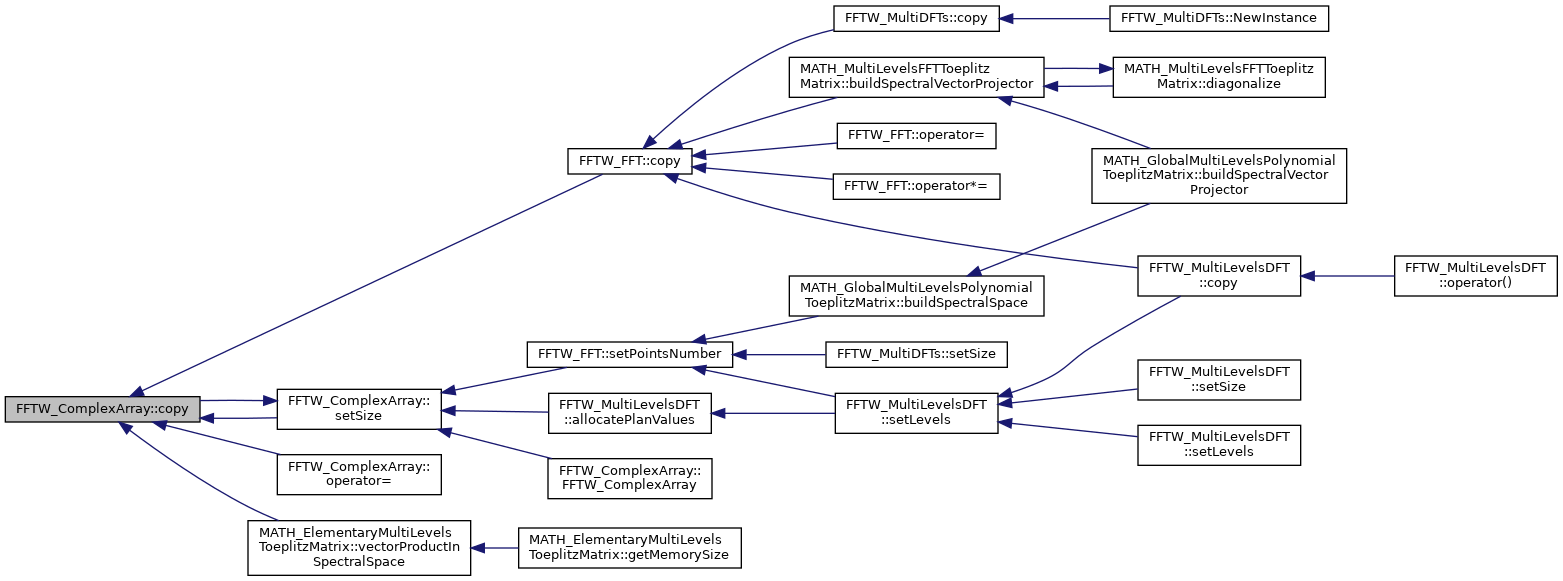
◆ copy() [2/6]
| void FFTW_ComplexArray::copy | ( | const CORE_ComplexArray & | f | ) |
copy the complex array
- Parameters
-
f the array to copy
References CORE_Array< T >::getSize(), mValues, OMP_GET_THREAD_ID, OMP_GET_THREADS_NUMBER, OMP_PARALLEL_PRIVATE_SHARED_DEFAULT, setSize(), tComplex, tFFTWComplex, tUIndex, and tUInteger.

◆ copy() [3/6]
| void FFTW_ComplexArray::copy | ( | const complex< T > * | f, |
| const tUIndex & | n | ||
| ) |
copy the complex array
- Parameters
-
f the array to copy n the size of the array
References allocate(), desallocate(), mCapacity, mSize, mValues, OMP_GET_THREAD_ID, OMP_GET_THREADS_NUMBER, OMP_PARALLEL_PRIVATE_SHARED_DEFAULT, tFFTWComplex, tUIndex, and tUInteger.

◆ copy() [4/6]
| void FFTW_ComplexArray::copy | ( | const CORE_RealArray & | f | ) |
copy the real array
- Parameters
-
f the array to copy
References CORE_Array< T >::getSize(), mValues, OMP_GET_THREAD_ID, OMP_GET_THREADS_NUMBER, OMP_PARALLEL_PRIVATE_SHARED_DEFAULT, setSize(), tFFTWComplex, tFFTWReal, tReal, tUIndex, and tUInteger.

◆ copy() [5/6]
| void FFTW_ComplexArray::copy | ( | const CORE_DoubleArray & | f | ) |
copy the double array
- Parameters
-
f the array to copy
References CORE_Array< T >::getSize(), mValues, OMP_GET_THREAD_ID, OMP_GET_THREADS_NUMBER, OMP_PARALLEL_PRIVATE_SHARED_DEFAULT, setSize(), tDouble, tFFTWComplex, tFFTWReal, tUIndex, and tUInteger.

◆ copy() [6/6]
| void FFTW_ComplexArray::copy | ( | const CORE_FloatArray & | f | ) |
copy the float array
- Parameters
-
f the array to copy
References CORE_Array< T >::getSize(), mValues, OMP_GET_THREAD_ID, OMP_GET_THREADS_NUMBER, OMP_PARALLEL_PRIVATE_SHARED_DEFAULT, setSize(), tFFTWComplex, tFFTWReal, tFloat, tUIndex, and tUInteger.

◆ desallocate()
|
private |
desallocate the memory
References FFTW_FREE, mCapacity, mIsPrivateAllocated, mSize, mValues, and null.
Referenced by allocate(), clear(), copy(), operator-=(), setValuesByReference(), and ~FFTW_ComplexArray().

◆ distance()
|
inline |
compute the distance of this to x
- Parameters
-
x the array to compute the distance
compute the norm ||this-x||
References distance2(), fabs(), tFFTWReal, toString(), tString, and tUIndex.

◆ distance2()
| tFFTWReal FFTW_ComplexArray::distance2 | ( | const FFTW_ComplexArray & | x | ) | const |
compute the square of distance of this to x
- Parameters
-
x the array to compute the distance
compute the norm ||this-x||^2
References getSize(), mSize, mValues, norm(), OMP_GET_THREAD_ID, OMP_GET_THREADS_NUMBER, OMP_PARALLEL_PRIVATE_SHARED_DEFAULT_REDUCTION, tFFTWComplex, tFFTWReal, tUIndex, and tUInteger.
Referenced by distance(), and norm().


◆ fabs() [1/2]
compute the index of the array where the module is max
- Parameters
-
i the index where the module is max
- Returns
- the max module
References mSize, mValues, norm(), OMP_GET_THREAD_ID, OMP_GET_THREADS_NUMBER, OMP_PARALLEL_PRIVATE_SHARED_DEFAULT_REDUCTION, tFFTWComplex, tFFTWReal, tReal, tUIndex, and tUInteger.
Referenced by distance().


◆ fabs() [2/2]
| tFFTWReal FFTW_ComplexArray::fabs | ( | const FFTW_ComplexArray & | x, |
| tUIndex & | i | ||
| ) | const |
compute the index of the array where the module of the difference with x is max
- Parameters
-
x the compared complex array i the index where the module is max
- Returns
- the max of the module
References getSize(), mSize, mValues, norm(), OMP_GET_THREAD_ID, OMP_GET_THREADS_NUMBER, OMP_PARALLEL_PRIVATE_SHARED_DEFAULT_REDUCTION, tFFTWComplex, tFFTWReal, tReal, tUIndex, and tUInteger.

◆ fitToSize()
| void FFTW_ComplexArray::fitToSize | ( | ) |
set the capacityto size
References allocate(), getSize(), mCapacity, and tUIndex.
Referenced by setSize().

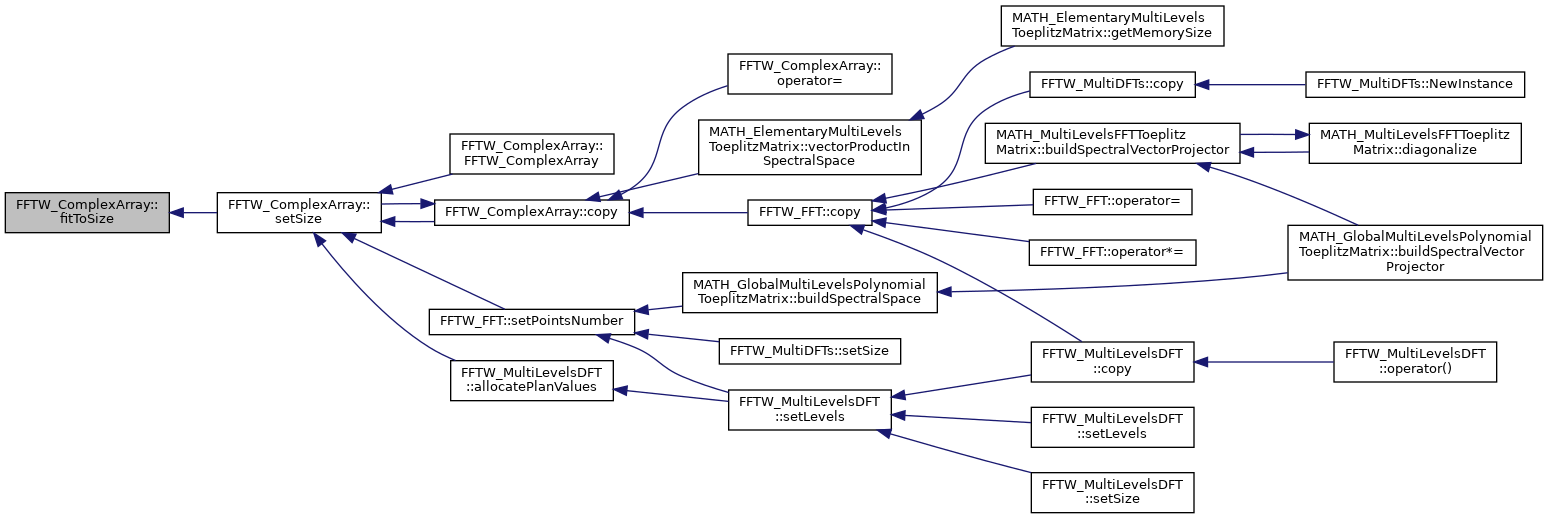
◆ getCapacity()
|
inline |
◆ getClassName() [1/2]
|
inherited |
return the class name of the object
- Returns
- the class name of the object
References tString.
Referenced by CORE_Object::getIdentityString(), EMM_Operator::getName(), and CORE_Object::isMemoryChecked().

◆ getClassName() [2/2]
return the class name of the object
- Parameters
-
identityString the identity string of the object
- Returns
- the class name
◆ getDoubleEpsilon()
|
inlinestaticinherited |
get the epsilon value for tDouble type
- Returns
- the epsilon value for tDouble type
Referenced by CORE_Test::testType().
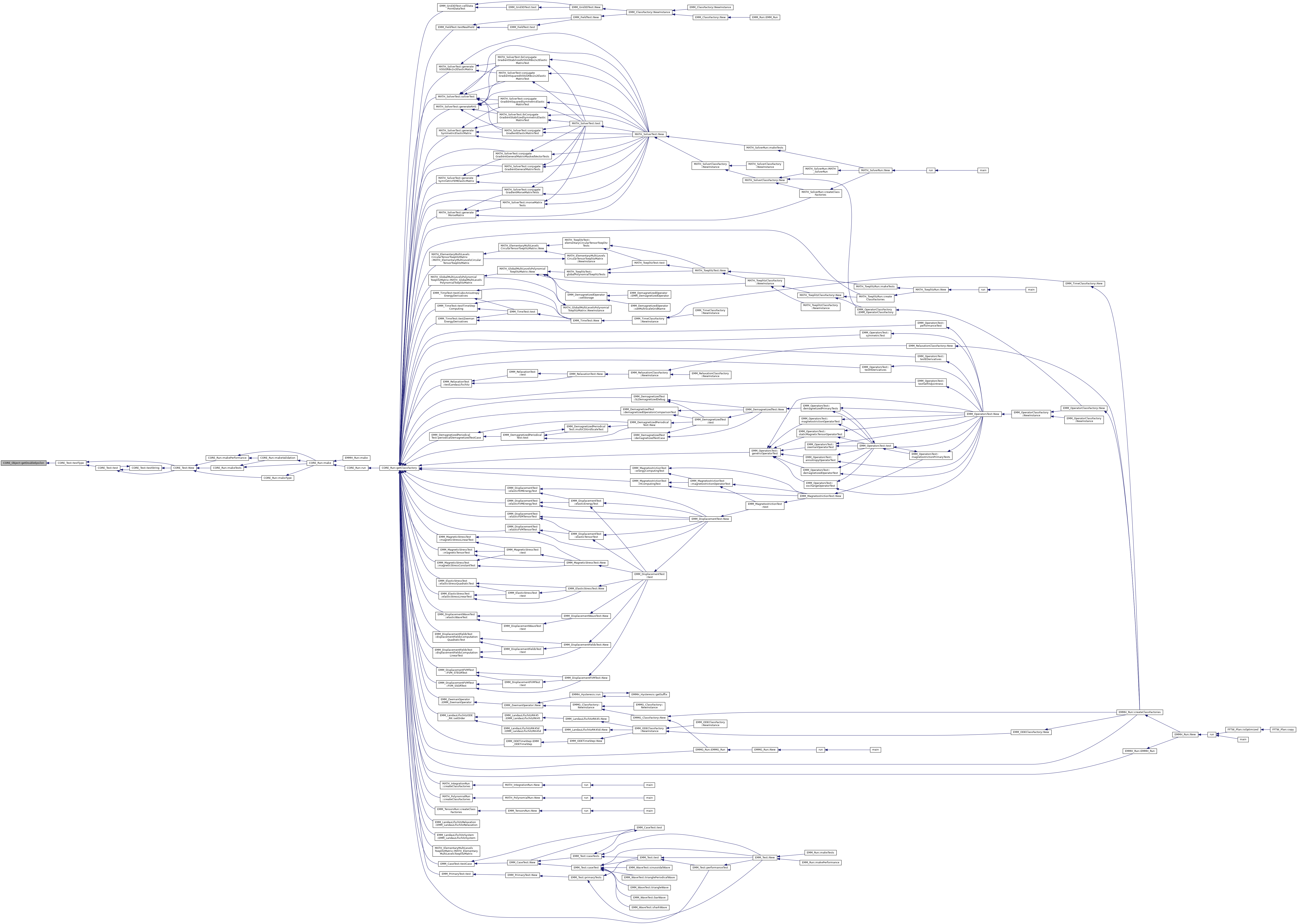
◆ getDoubleInfinity()
|
inlinestaticinherited |
get the infinity value for tFloat type
- Returns
- the intinity value for tFloat type
◆ getEpsilon()
|
inlinestaticinherited |
get the epsilon value for T type
- Returns
- the epsilon value for T type
◆ getFloatEpsilon()
|
inlinestaticinherited |
get the epsilon value for tFloat type
- Returns
- the epsilon value for tFloat type
Referenced by CORE_Test::testType().
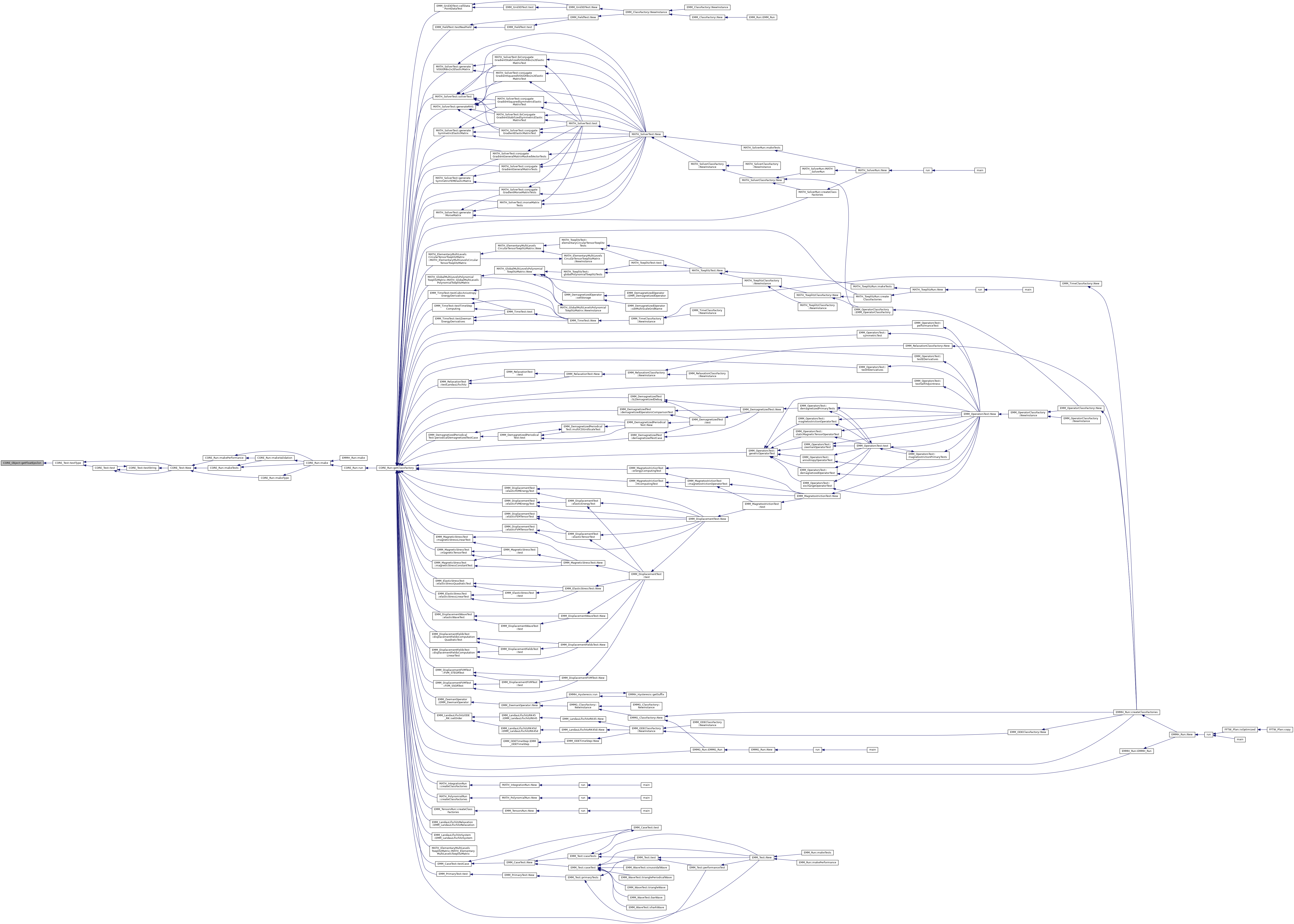
◆ getFloatInfinity()
|
inlinestaticinherited |
get the infinity value for tFloat type
- Returns
- the intinity value for tFloat type
◆ getIdentityString()
|
inlineinherited |
return the identity string of the object of the form className_at_address
- Returns
- the identity string of the object
References CORE_Object::getClassName(), CORE_Object::pointer2String(), and tString.
Referenced by MATH_GaussLegendreIntegration::copy(), EMM_MultiScaleGrid::initialize(), CORE_Object::isInstanceOf(), CORE_Object::printObjectsInMemory(), MATH_Matrix::toString(), EMMG_SLPeriodicMultiScale::toString(), EMM_Stepper::toString(), EMM_AnisotropyDirectionsField::toString(), EMM_BlockMassMatrix::toString(), CORE_Object::toString(), EMM_Tensors::toString(), EMM_MultiScaleGrid::toString(), EMM_MatterField::toString(), EMM_Grid3D::toString(), and EMM_LandauLifschitzSystem::toString().

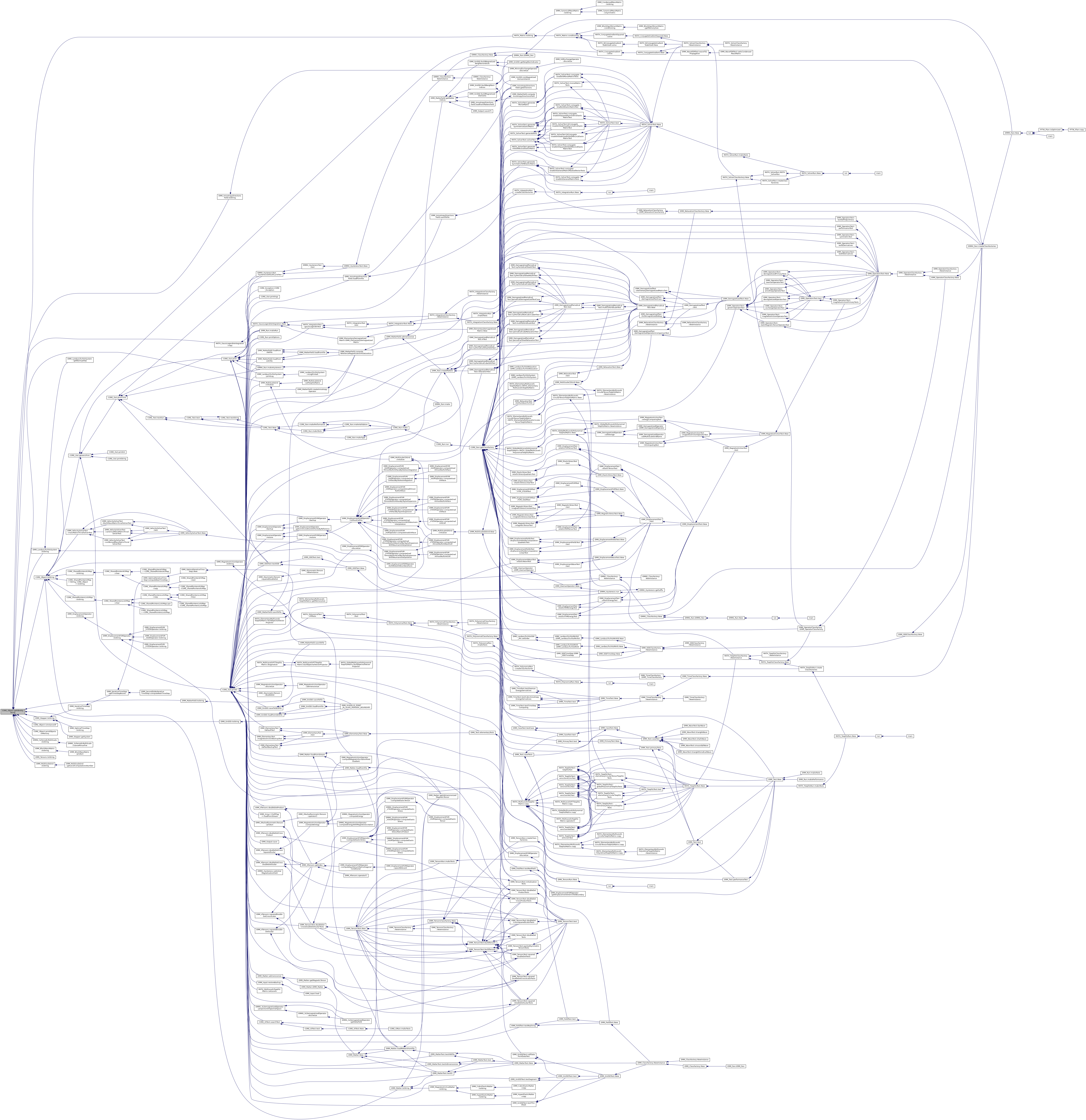
◆ getInfinity()
|
inlinestaticinherited |
get the infinity for T type
- Returns
- the infinity value for T type
◆ getLDoubleEpsilon()
|
inlinestaticinherited |
get the epsilon value for tLDouble type
- Returns
- the epsilon value for tLDouble type
Referenced by CORE_Test::testType().

◆ getLDoubleInfinity()
|
inlinestaticinherited |
get the infinity value for tDouble type
- Returns
- the infinity value for tDouble type
◆ getMaxChar()
|
inlinestaticinherited |
get the max value for tChar type
- Returns
- the max value for tChar type
Referenced by CORE_Test::testType().

◆ getMaxDouble()
|
inlinestaticinherited |
get the max value for tDouble type
- Returns
- the max value for tDouble type
Referenced by CORE_Test::testType().
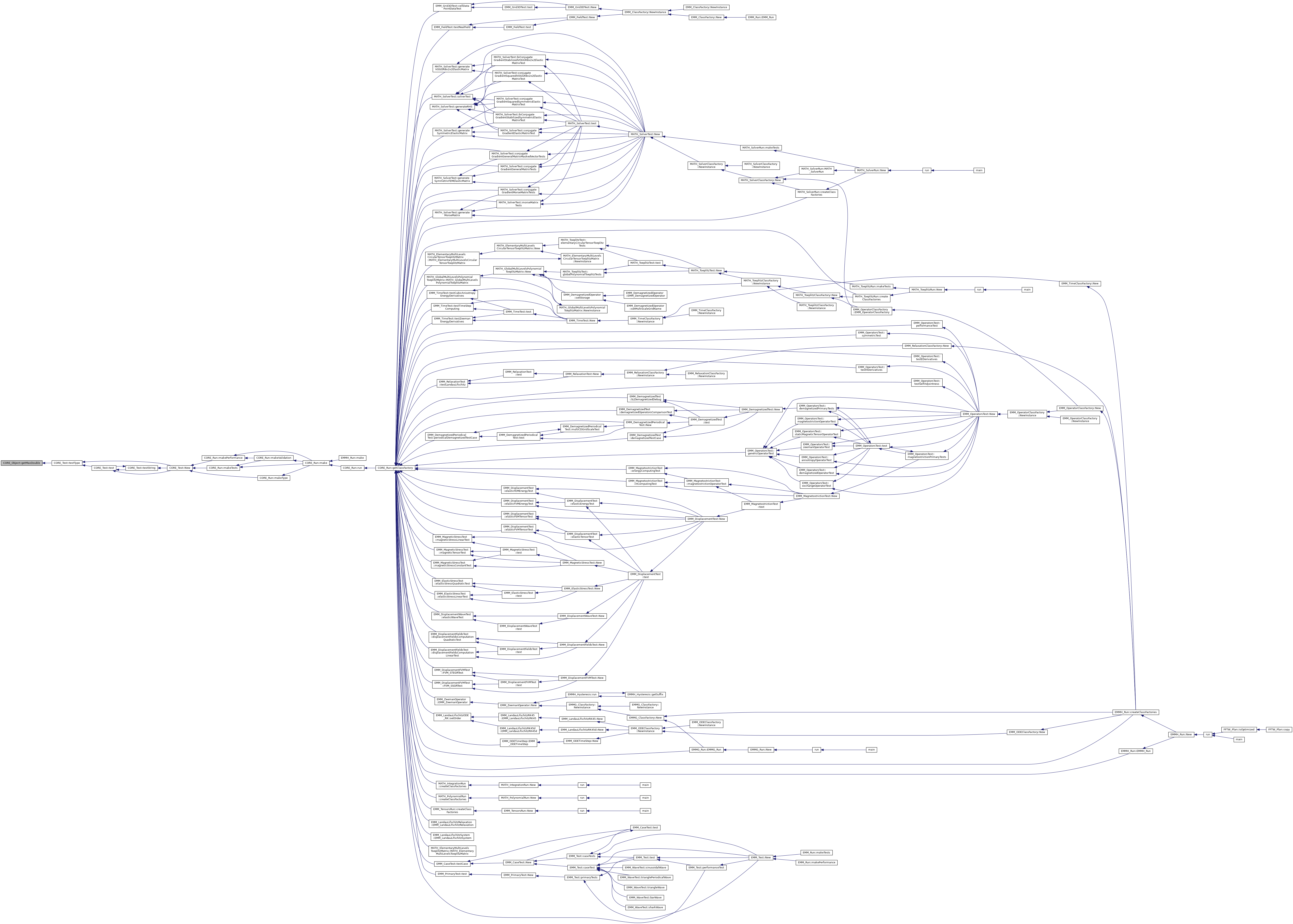
◆ getMaxFlag()
|
inlinestaticinherited |
get the max value for the tFlag type
- Returns
- the max value for the tFlag type
Referenced by CORE_Test::testType().

◆ getMaxFloat()
|
inlinestaticinherited |
get the max value for tFloat type
- Returns
- the max value for tFloat type
Referenced by CORE_Test::testType().
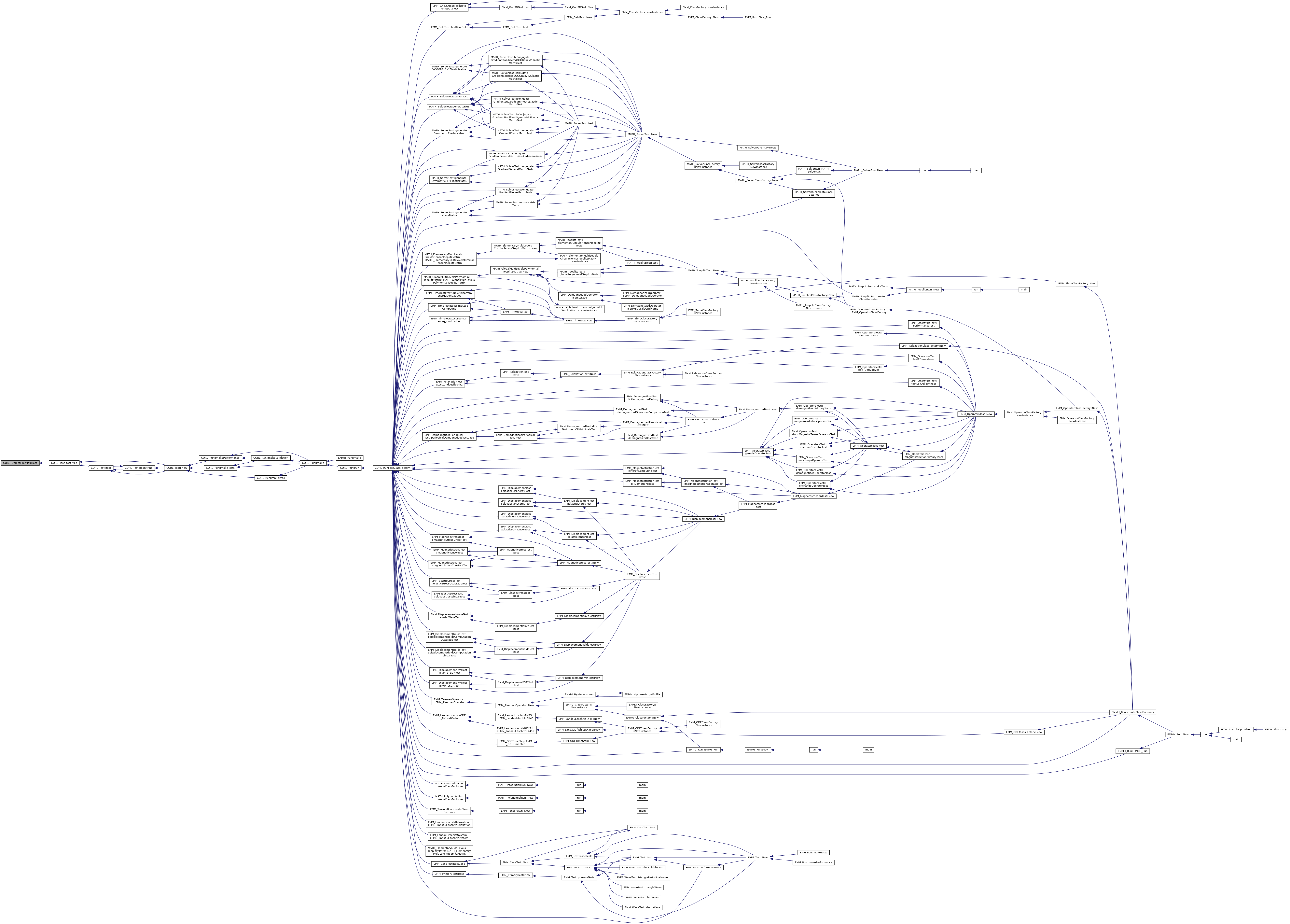
◆ getMaxIndex()
|
inlinestaticinherited |
get the max value for the array/vector indexing type
- Returns
- the max value for the array/vector indexing type
Referenced by CORE_Test::testType().
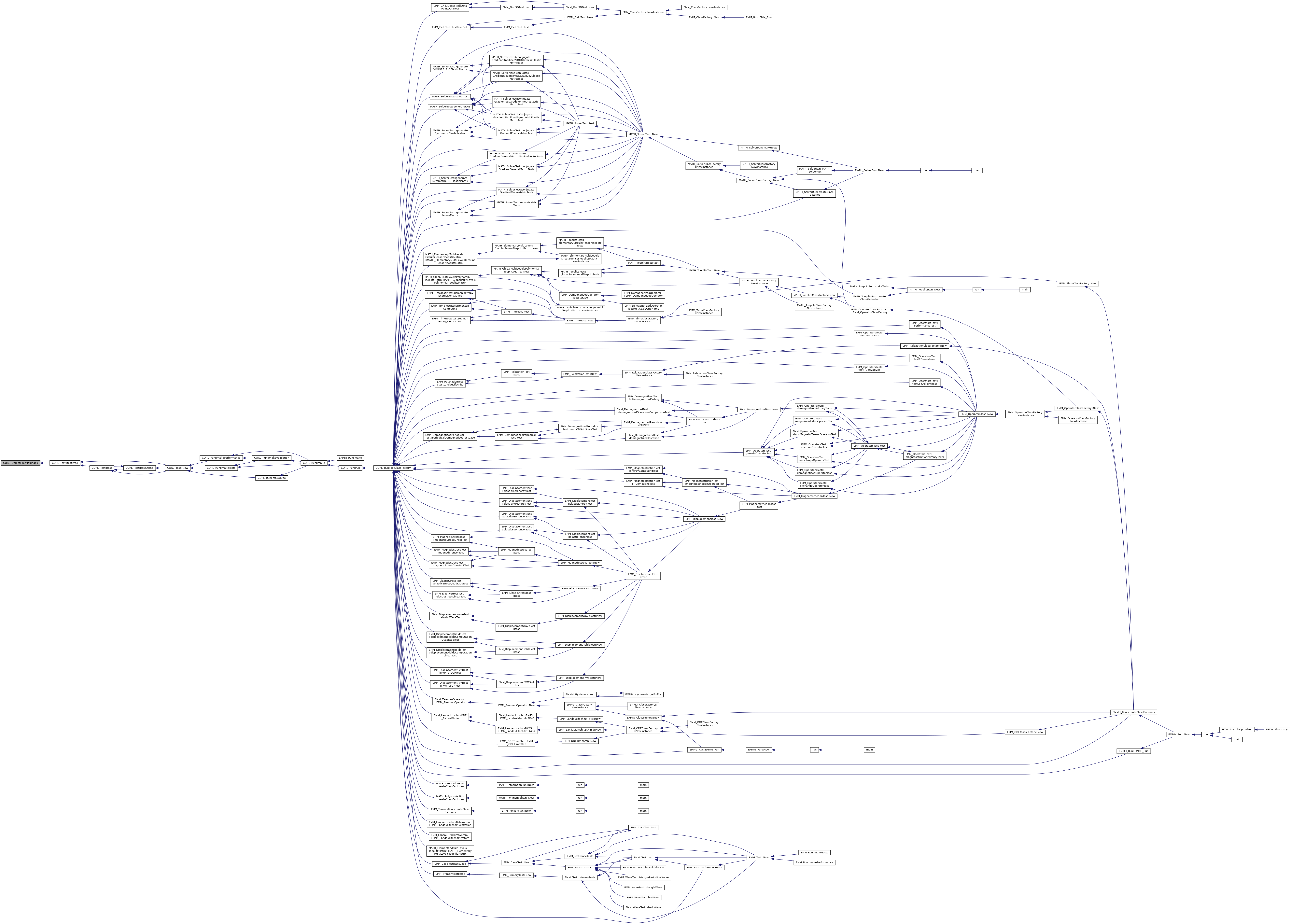
◆ getMaxInt()
|
inlinestaticinherited |
get the max value for tInt type
- Returns
- the max value for tInt type
Referenced by MATSGN_FFT::fastFourierTransform3D_FFTW(), and CORE_Test::testType().

◆ getMaxInteger()
|
inlinestaticinherited |
get the max value for the integer type
- Returns
- the max value for the integer type
Referenced by CORE_Test::testType().
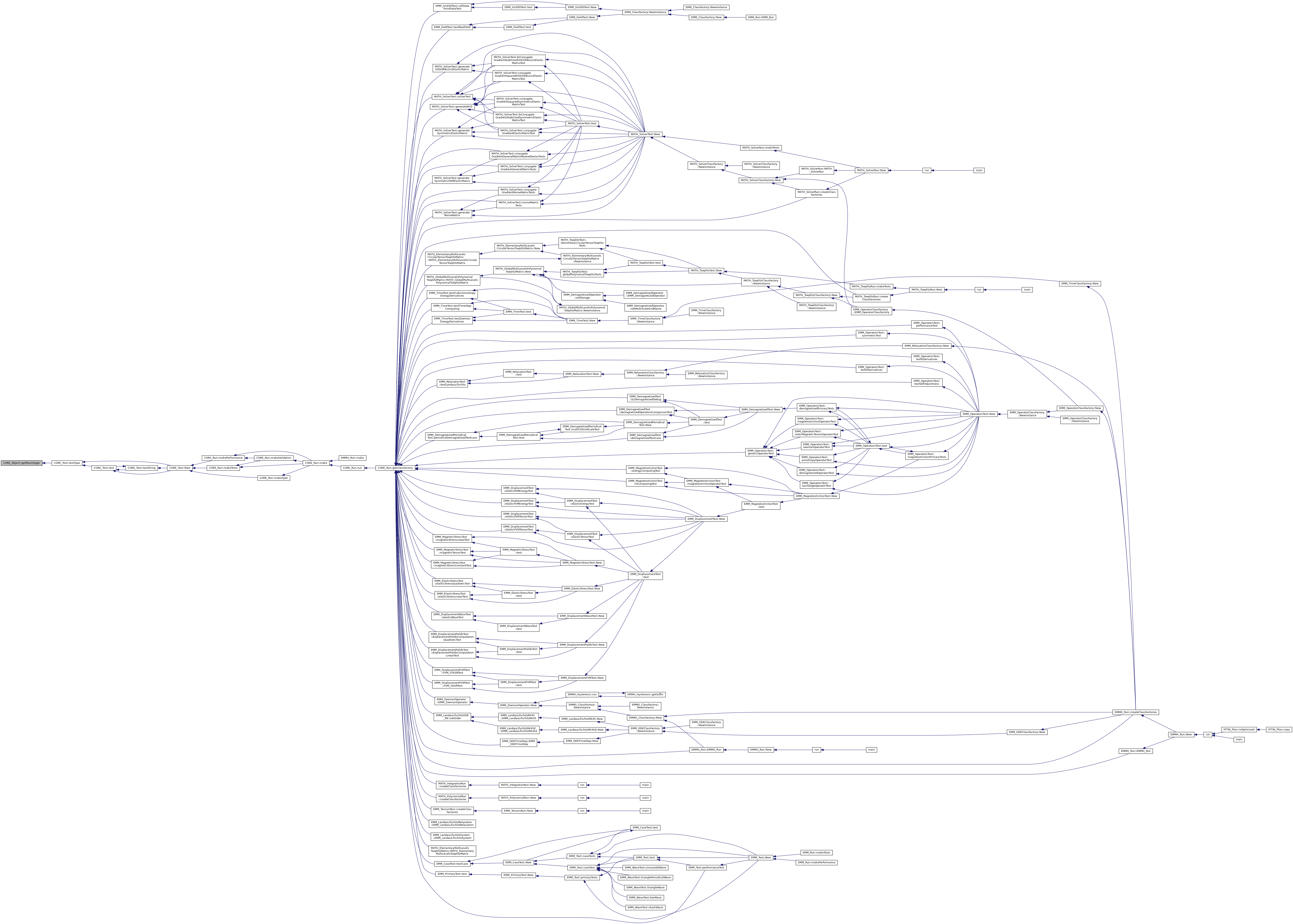
◆ getMaxLDouble()
|
inlinestaticinherited |
get the max value for tLDouble type
- Returns
- the max value for tLDouble type
Referenced by CORE_Test::testType().
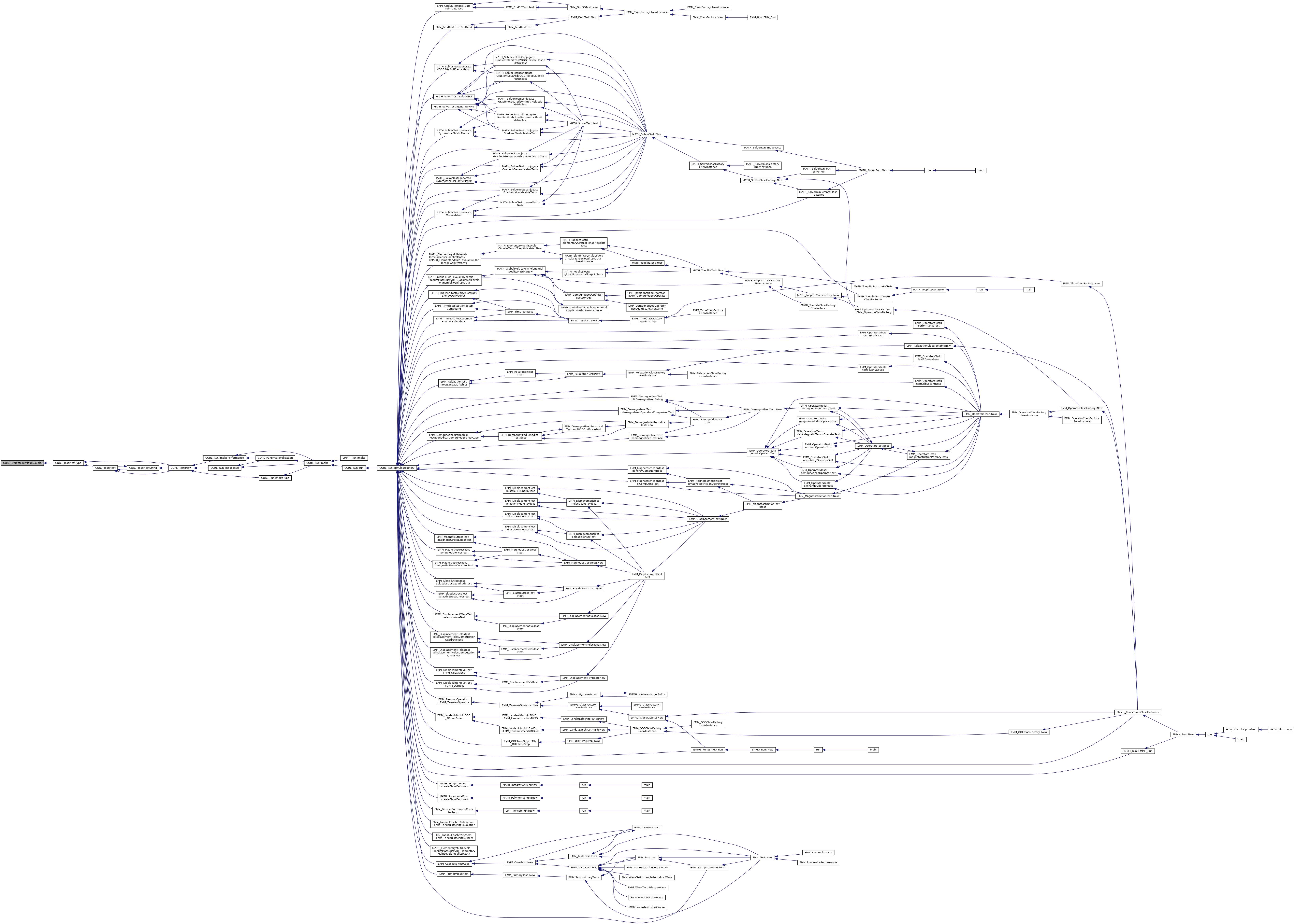
◆ getMaxLInt()
|
inlinestaticinherited |
get the max value for tLInt type
- Returns
- the max value for tLInt type
Referenced by CORE_Test::testType().

◆ getMaxLLInt()
|
inlinestaticinherited |
get the max value for tULInt type
- Returns
- the max value for tULInt type
Referenced by CORE_Test::testType().
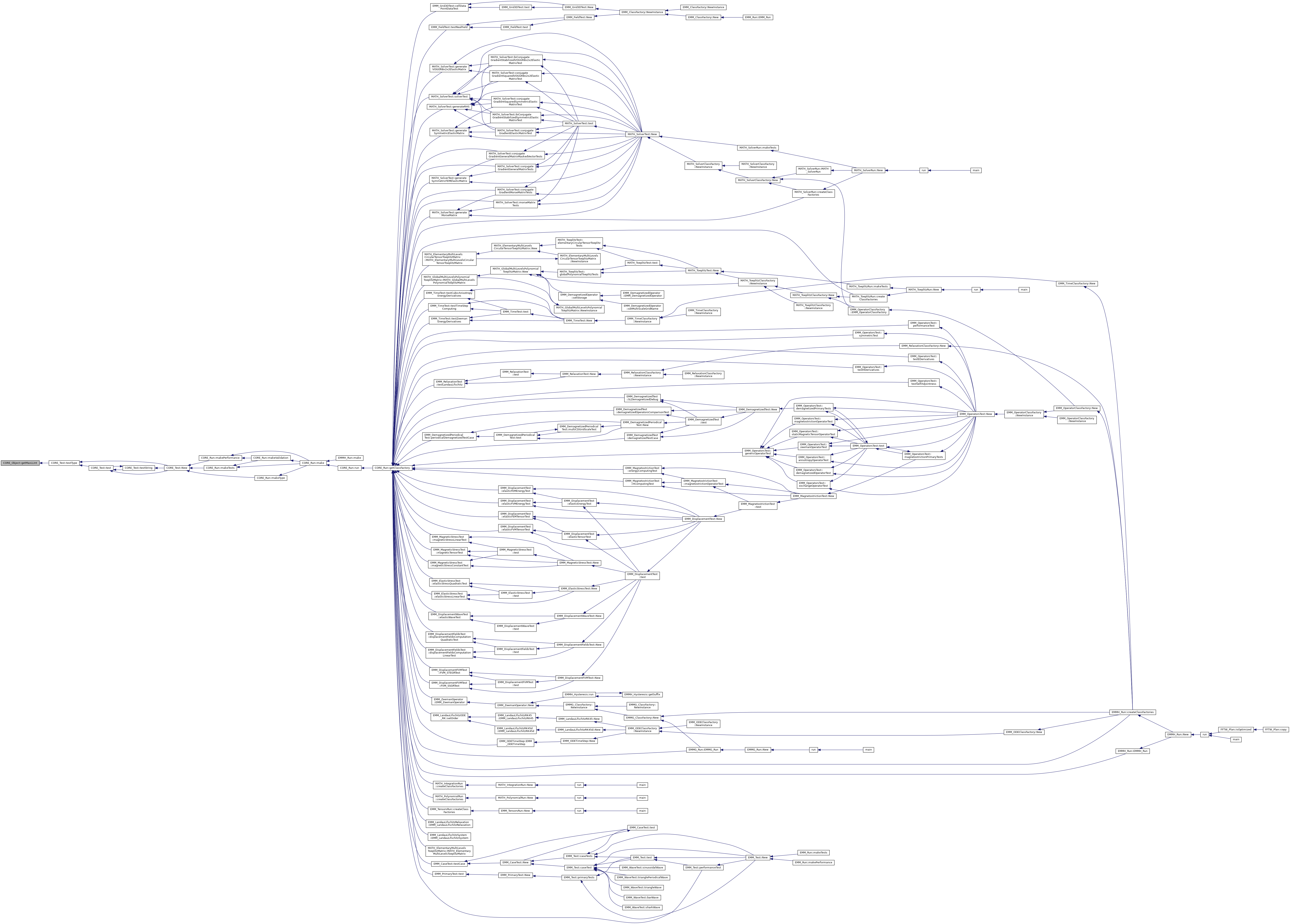
◆ getMaxReal()
|
inlinestaticinherited |
get the max value for the real type
- Returns
- he max value for the real type
Referenced by EMM_MatterField::adimensionize(), and CORE_Test::testType().

◆ getMaxSInt()
|
inlinestaticinherited |
get the max value for tSInt type
- Returns
- the max value for tSInt type
Referenced by CORE_Test::testType().
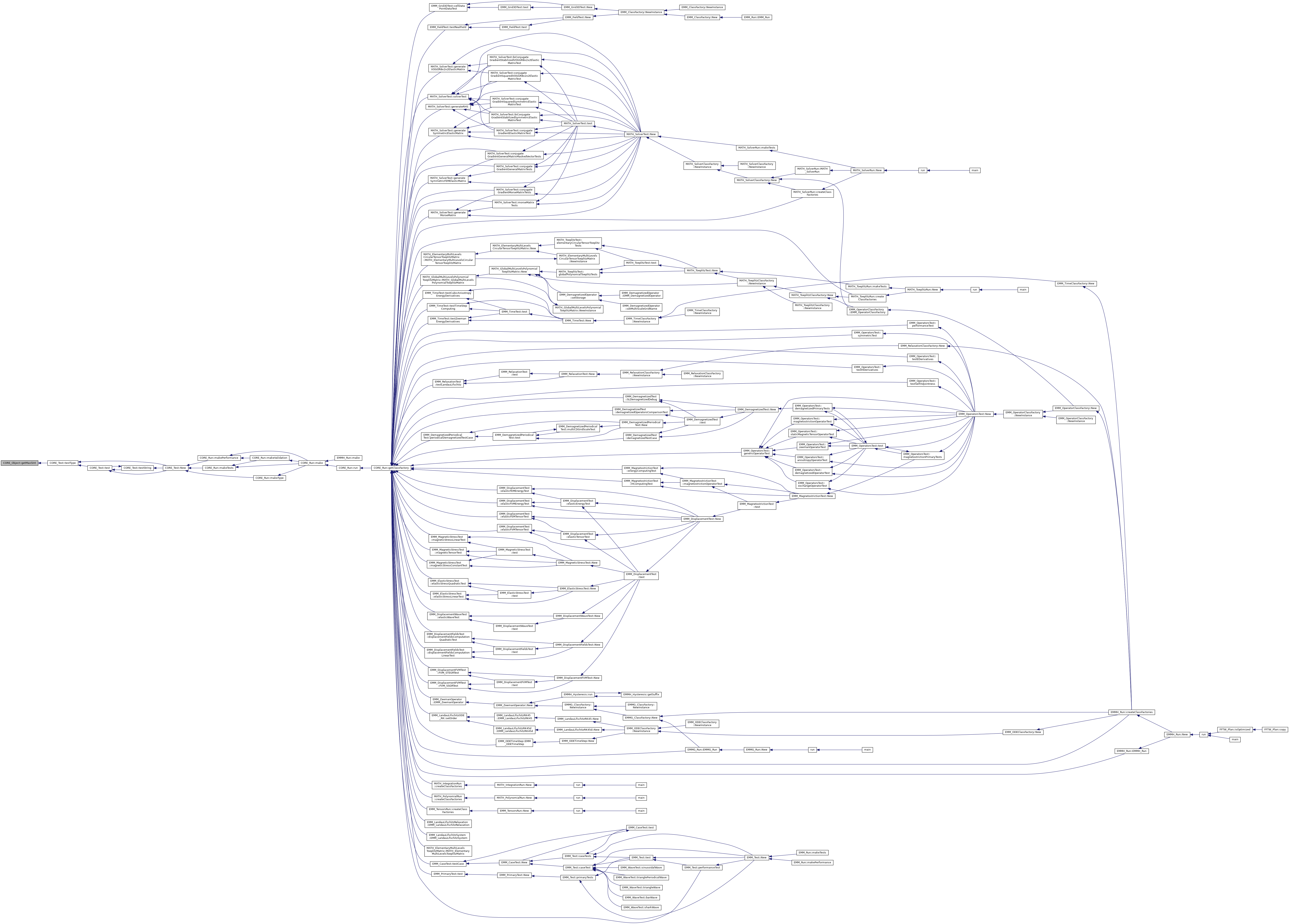
◆ getMaxUChar()
|
inlinestaticinherited |
get the max value for tUChar type
- Returns
- the max value for tUChar type
Referenced by CORE_Test::testType().
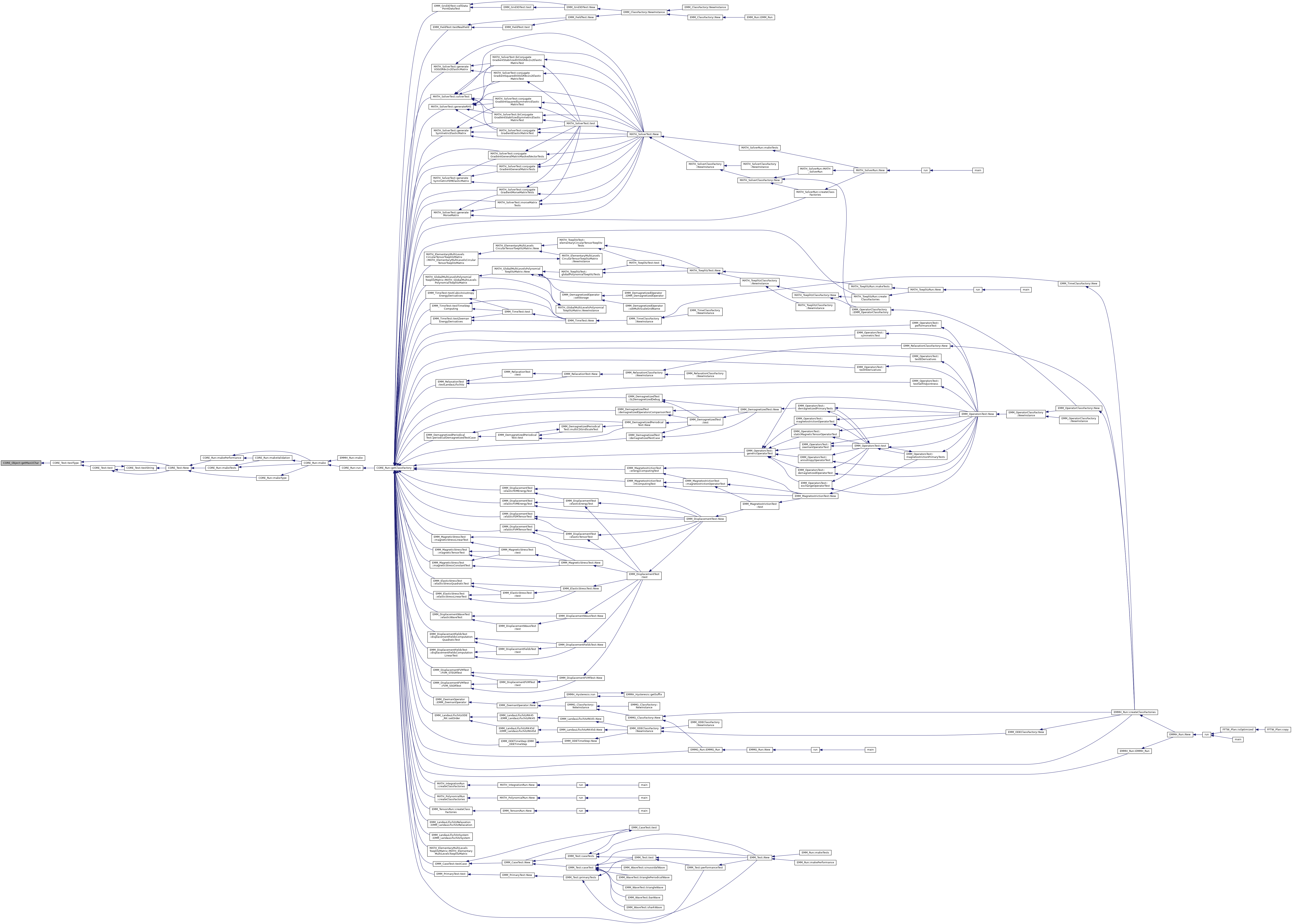
◆ getMaxUIndex()
|
inlinestaticinherited |
get the max value for difference the array/vector indexing type
- Returns
- the max value for difference the array/vector indexing type
Referenced by CORE_Vector< T >::addAfterIndices(), CORE_Vector< T >::search(), CORE_Test::testType(), CORE_Integer::toHexString(), and CORE_Integer::toString().

◆ getMaxUInt()
|
inlinestaticinherited |
get the max value for tUInt type
- Returns
- the max value for tUInt type
Referenced by EMM_Array< tCellFlag >::loadFromFile(), EMM_RealField::loadFromFile(), and CORE_Test::testType().

◆ getMaxUInteger()
|
inlinestaticinherited |
get the max value for the unsigned integer type
- Returns
- the max value for the unsigned integer type
Referenced by MATH_Pn::computeExtrenums(), EMM_MultiScaleGrid::computeLevelsNumber(), EMM_Input::restoreBackup(), MATH_P0::solve(), and CORE_Test::testType().

◆ getMaxULInt()
|
inlinestaticinherited |
get the max value for tULInt type
- Returns
- the max value for tULInt type
Referenced by CORE_Test::testType().
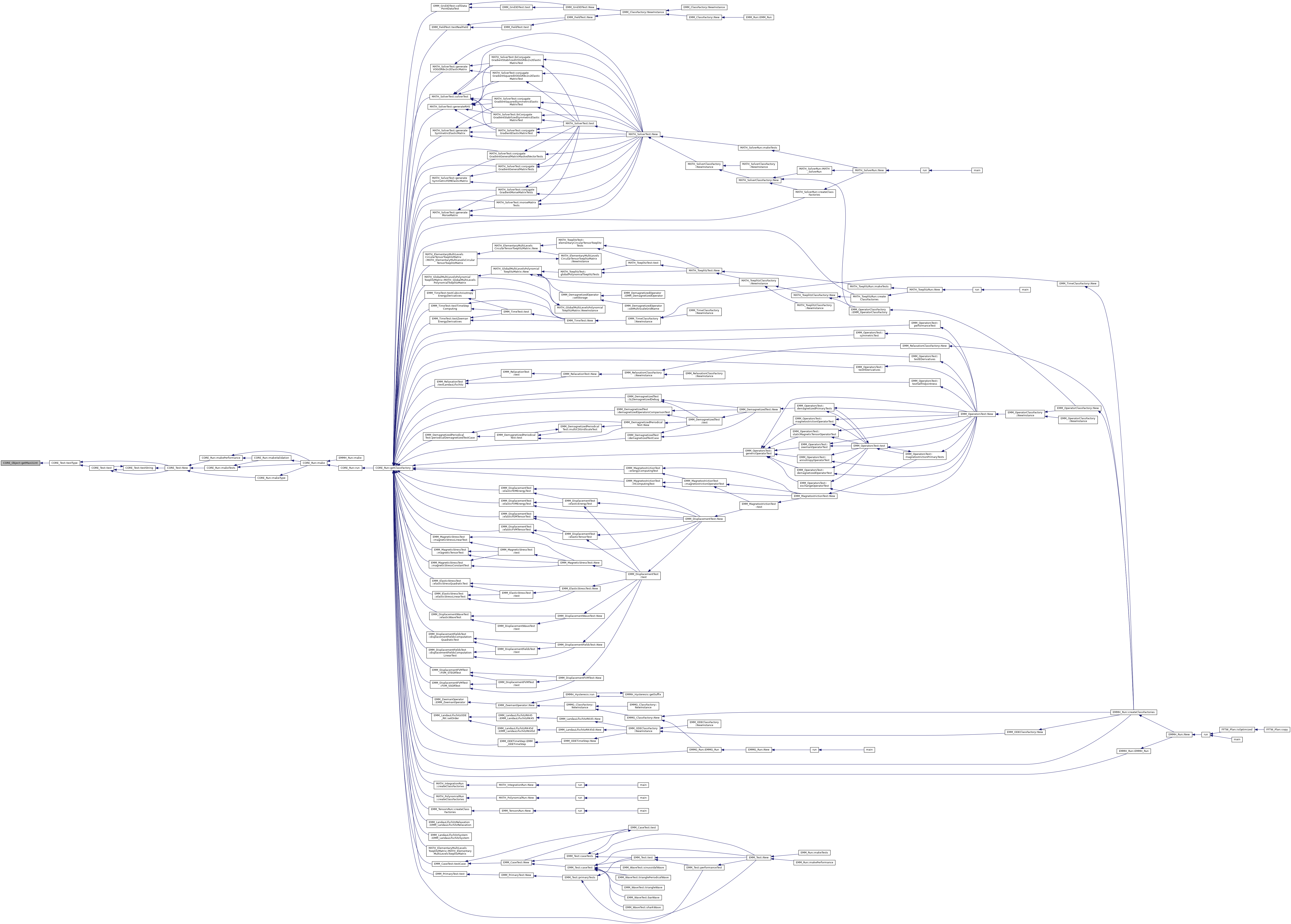
◆ getMaxULLInt()
|
inlinestaticinherited |
get the max value for tULLInt type
- Returns
- the max value for tULLInt type
Referenced by CORE_Test::testType().
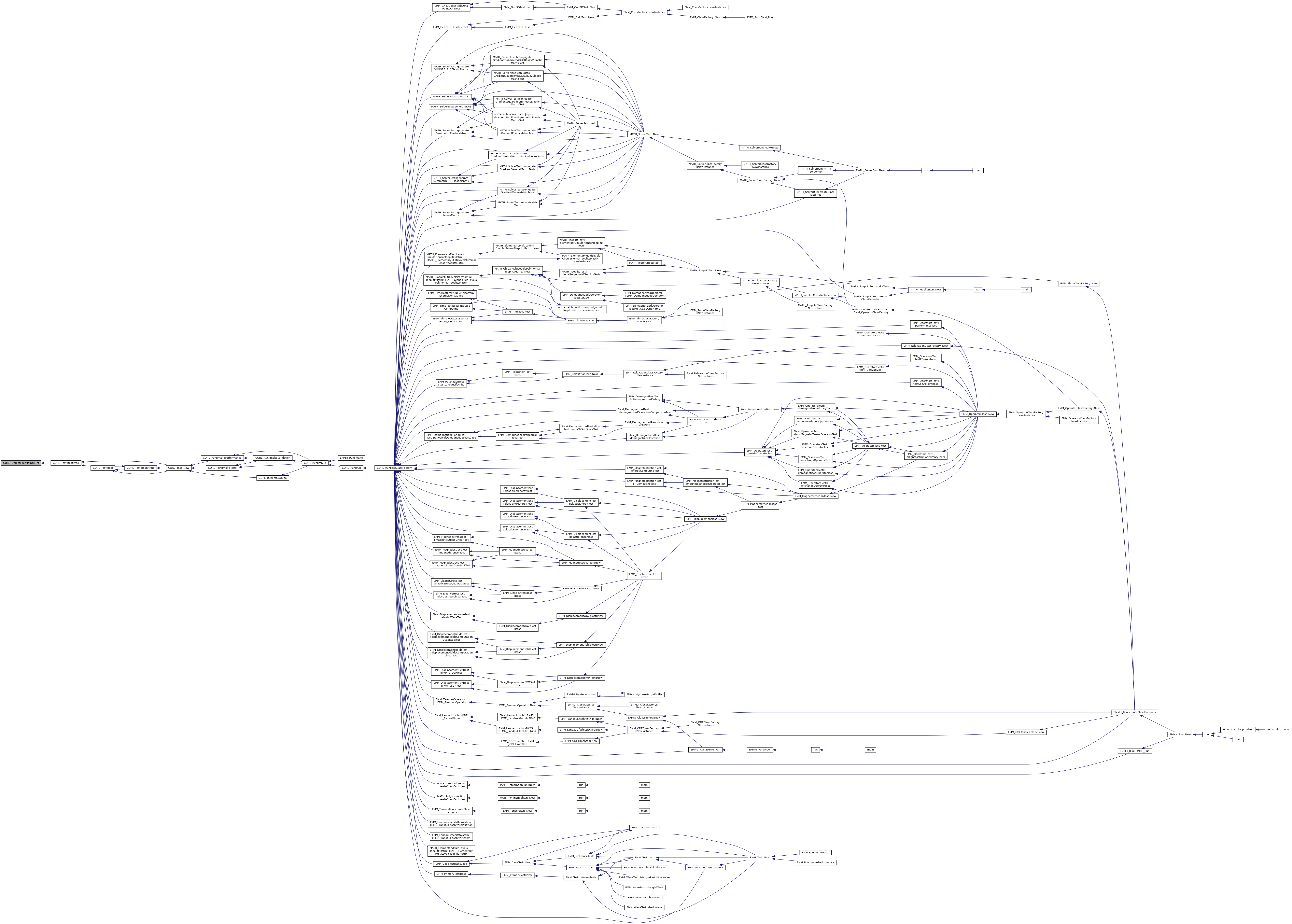
◆ getMaxUSInt()
|
inlinestaticinherited |
get the max value for tUSInt type
- Returns
- the max value for tUSInt type
Referenced by CORE_Test::testType().

◆ getMemorySize()
|
inlinevirtual |
return the memory size in byte
- Returns
- the memory size of the storage in bytes 1 Kb = 1024 bytes 1 Mb = 1024 Kb 1 Gb = 1024 Mb 1 Tb = 1024 Gb 1 Hb = 1024 Tb
References tFFTWComplex.
Referenced by FFTW_FFT::getMemorySize(), and FFTW_MultiLevelsDFT::getMemorySize().

◆ getMinChar()
|
inlinestaticinherited |
get the min value for tChar type
- Returns
- the min value for tChar type
Referenced by CORE_Test::testType().
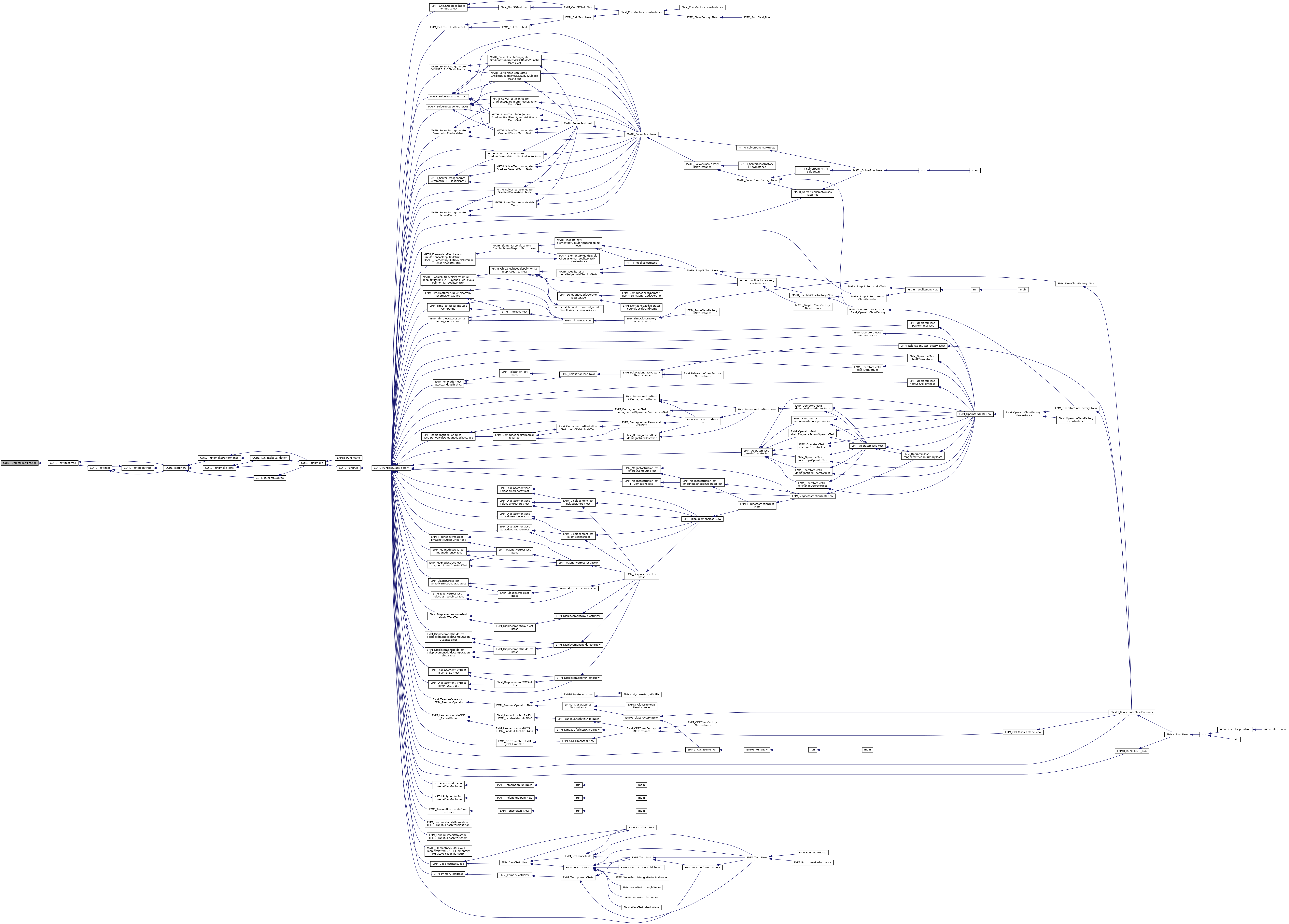
◆ getMinDouble()
|
inlinestaticinherited |
get the min value for tDouble type
- Returns
- the min value for tDouble type
Referenced by CORE_Test::testType().

◆ getMinFlag()
|
inlinestaticinherited |
get the min value for the tFlag type
- Returns
- the min value for the tFlag type
Referenced by CORE_Test::testType().
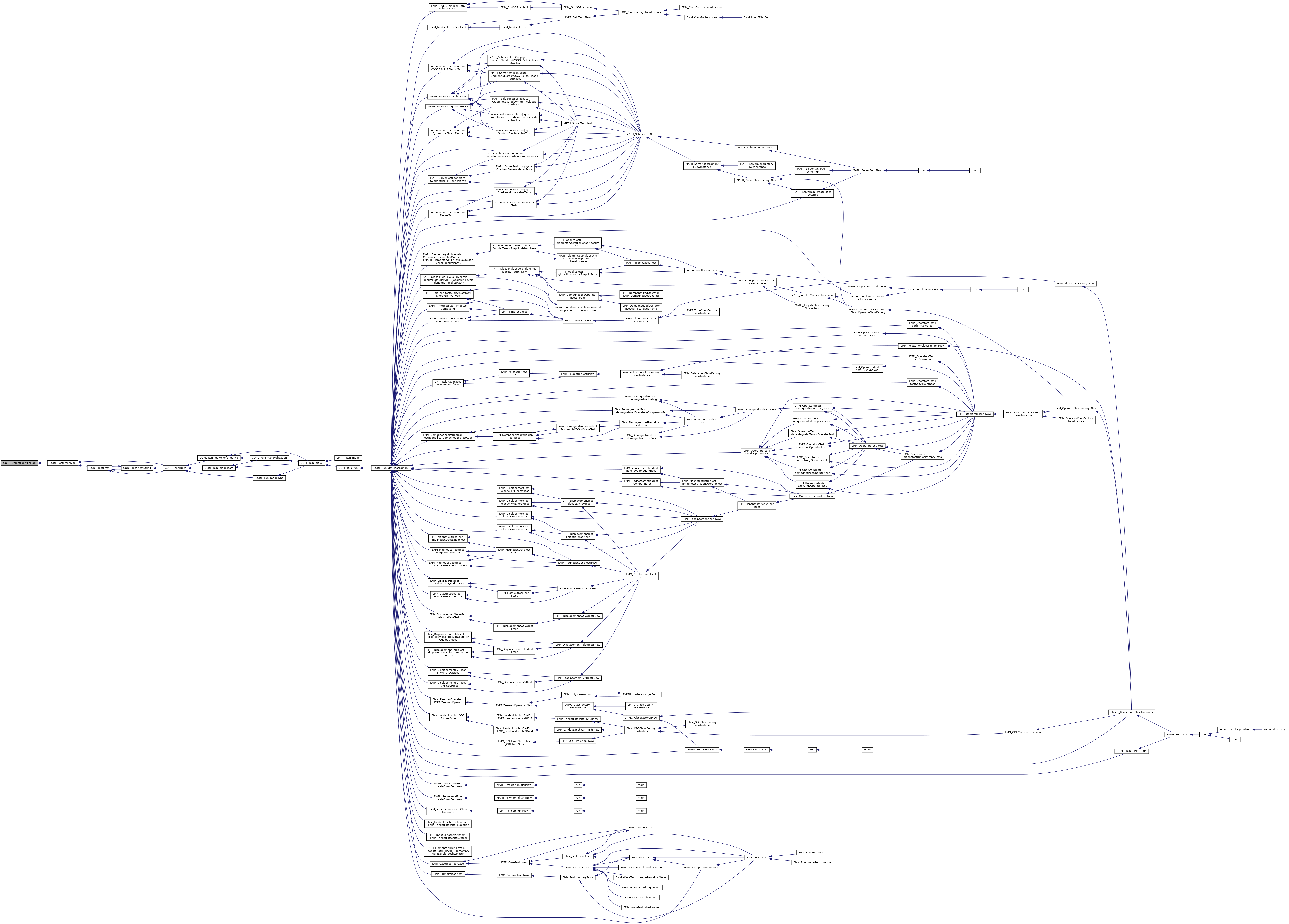
◆ getMinFloat()
|
inlinestaticinherited |
get the min value for tFloat type
- Returns
- the min value for tFloat type
Referenced by CORE_Test::testType().
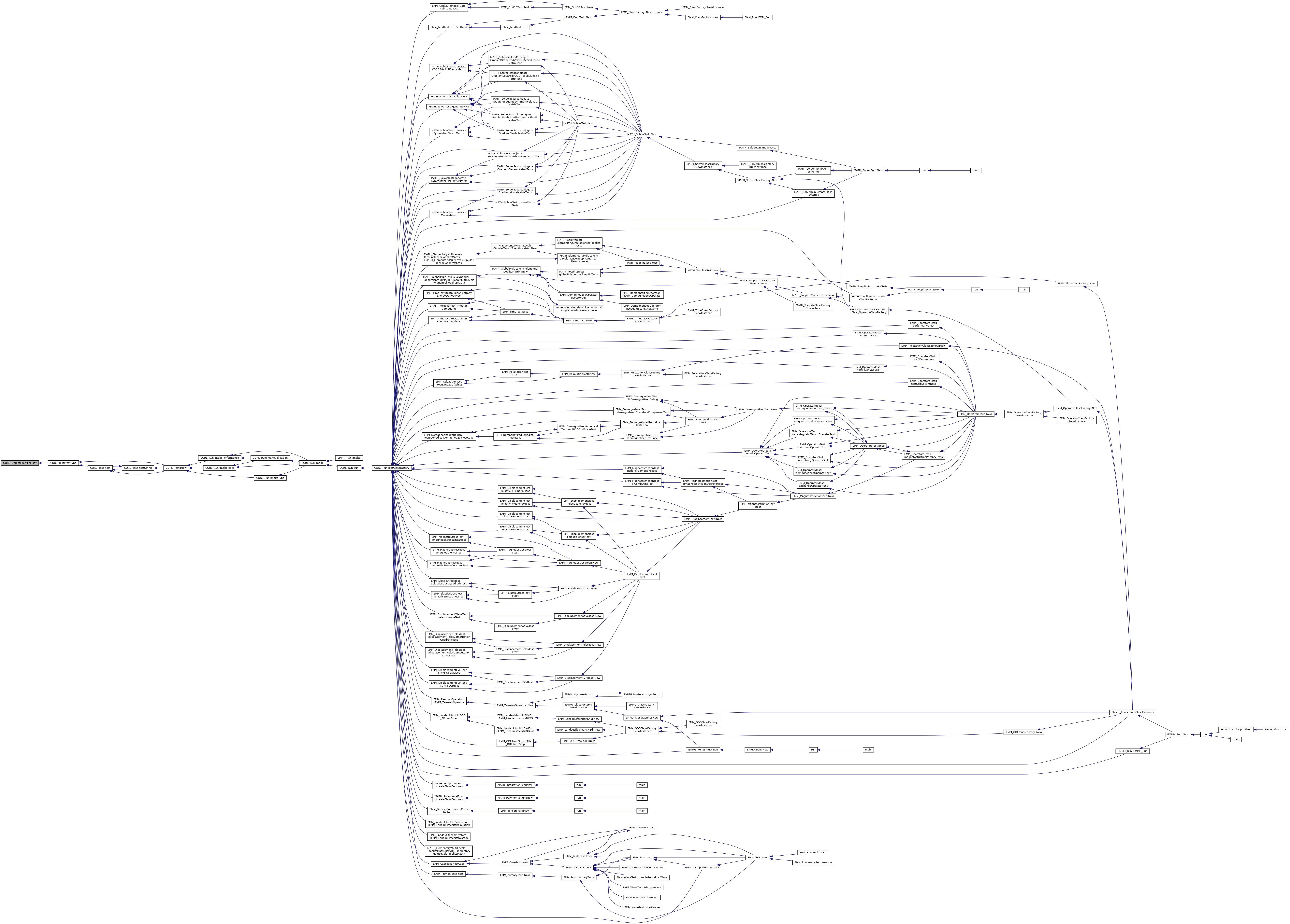
◆ getMinIndex()
|
inlinestaticinherited |
get the min value for the array/vector indexing type
- Returns
- the min value for the array/vector indexing type
Referenced by CORE_Test::testType().
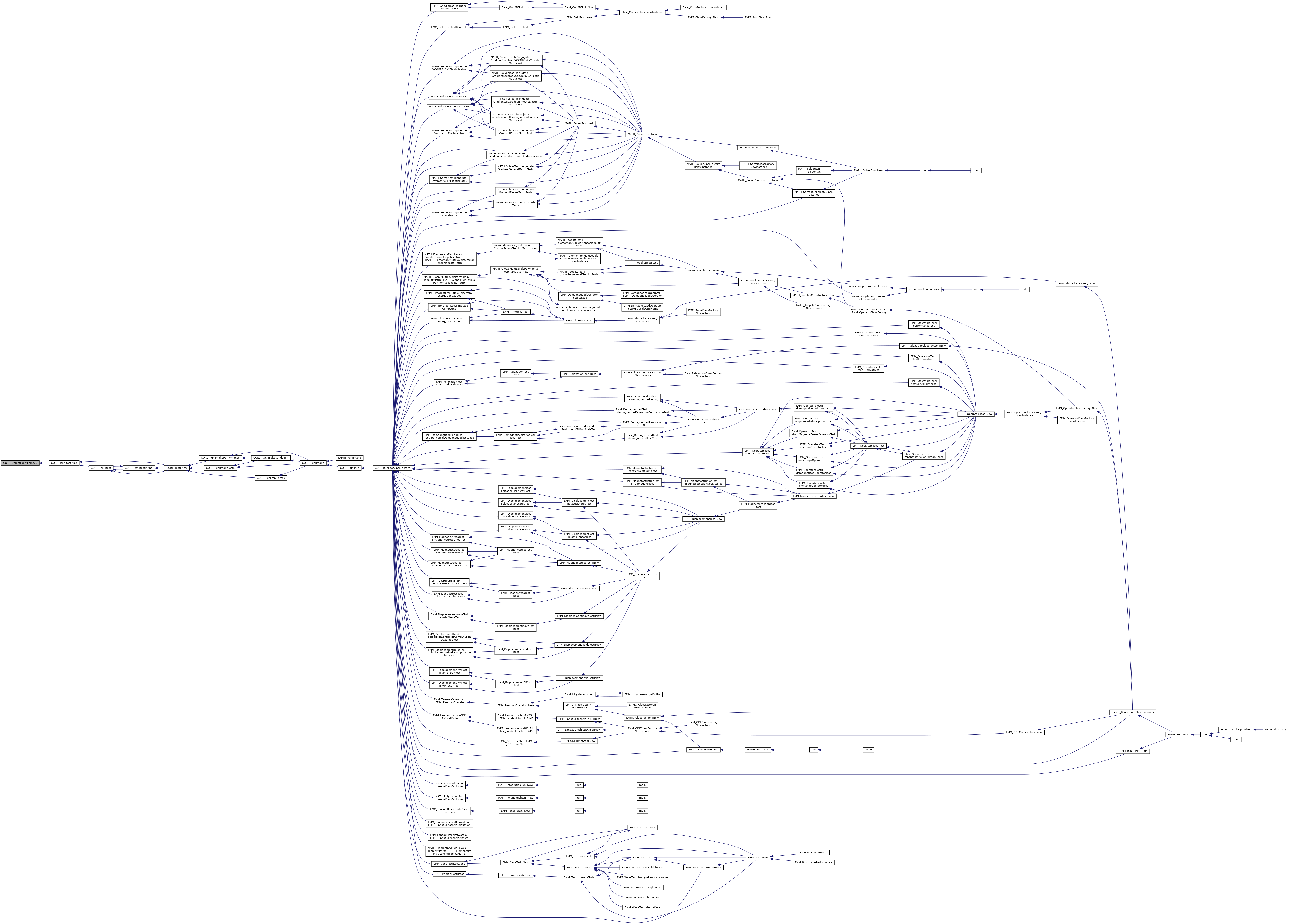
◆ getMinInt()
|
inlinestaticinherited |
get the min value for tInt type
- Returns
- the min value for tInt type
Referenced by CORE_Test::testType().
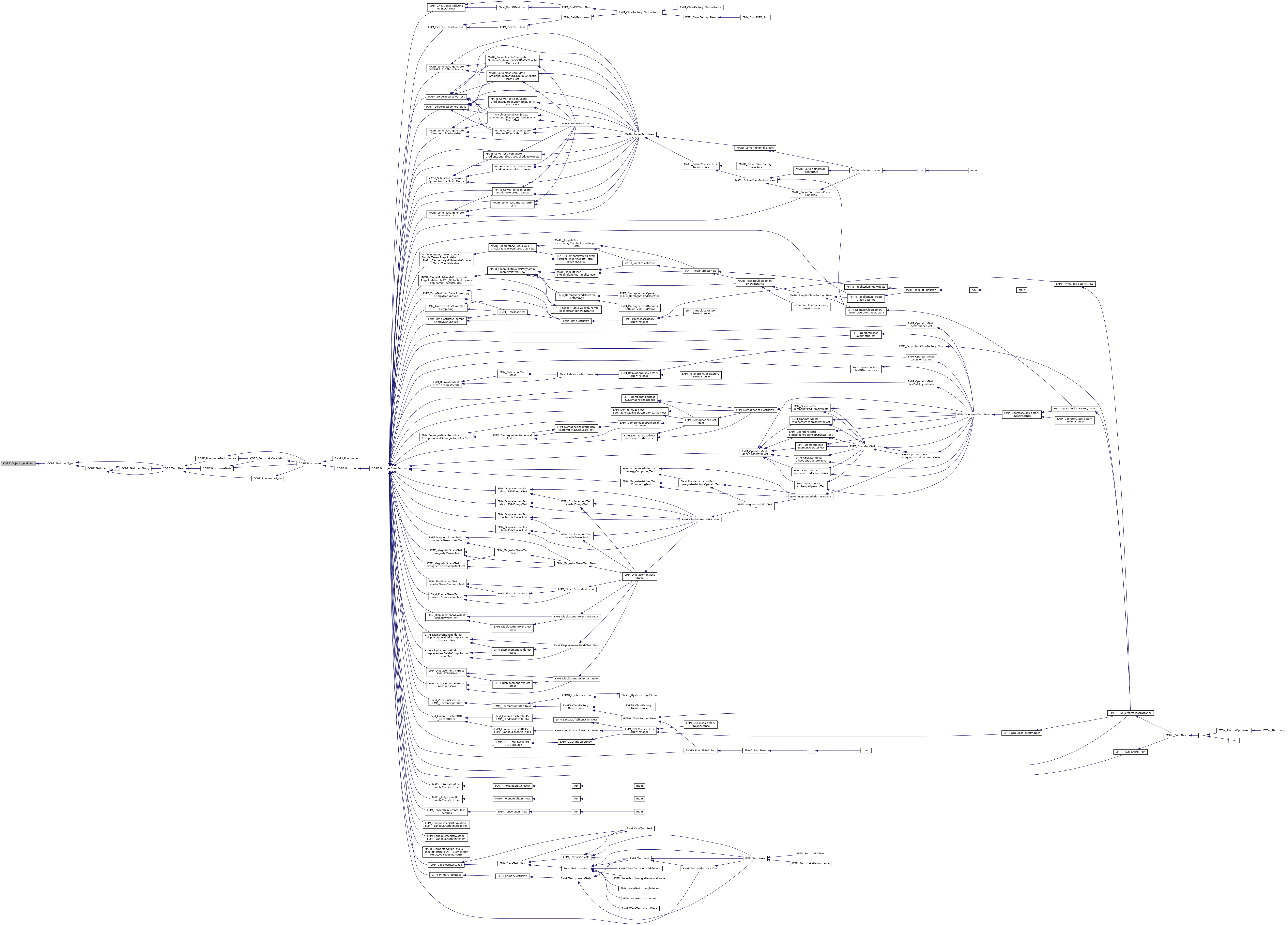
◆ getMinInteger()
|
inlinestaticinherited |
get the min value for the integer type
- Returns
- the minin value for the integer type
Referenced by CORE_Test::testType().

◆ getMinLDouble()
|
inlinestaticinherited |
get the min value for tLDouble type
- Returns
- the min value for tLDouble type
Referenced by CORE_Test::testType().

◆ getMinLInt()
|
inlinestaticinherited |
get the min value for tLInt type
- Returns
- the min value for tLInt type
Referenced by CORE_Test::testType().
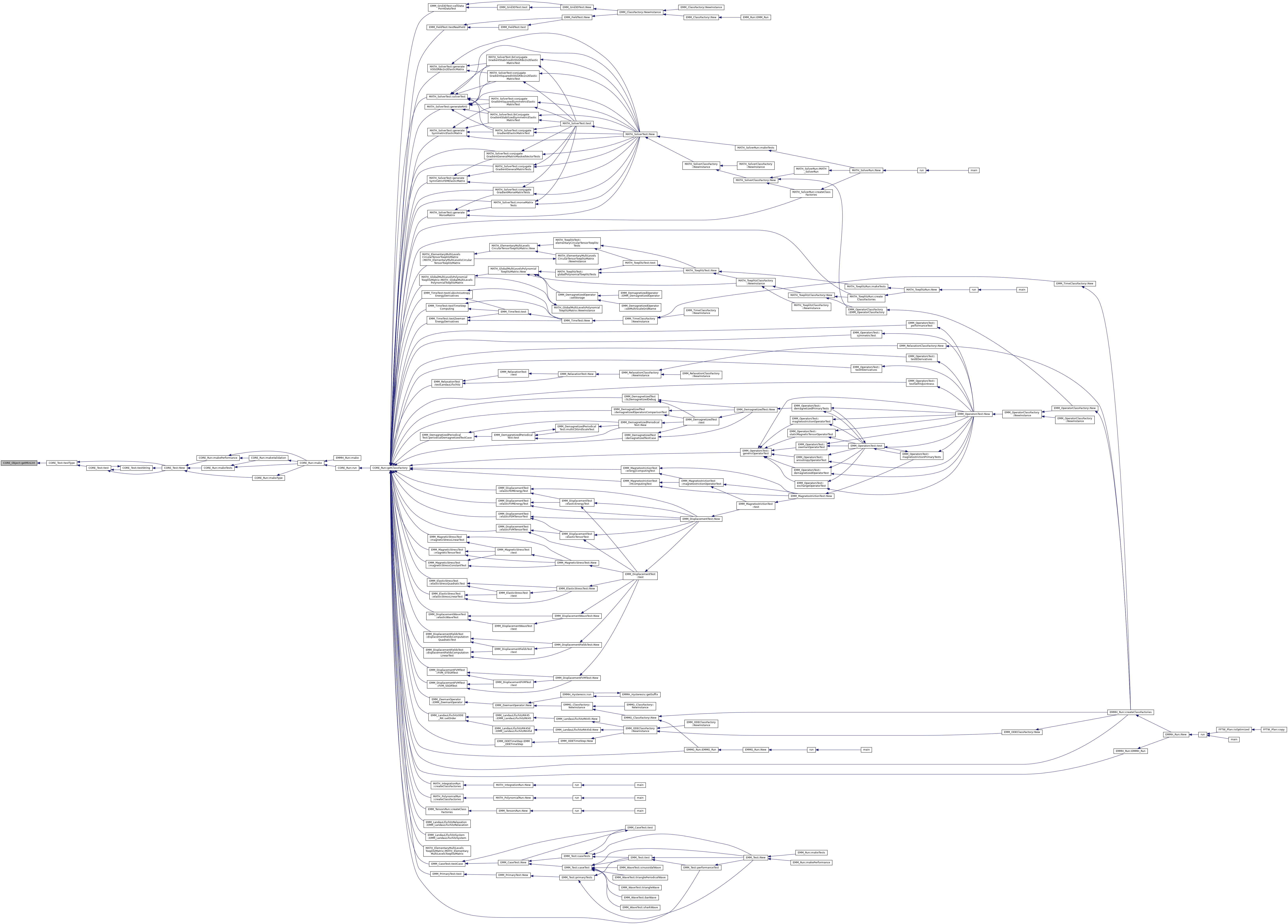
◆ getMinLLInt()
|
inlinestaticinherited |
get the min value for tLLInt type
- Returns
- the min value for tLLInt type
Referenced by CORE_Test::testType().

◆ getMinReal()
|
inlinestaticinherited |
get the min value for the real type
- Returns
- the min value for the real type
Referenced by CORE_Test::testType().
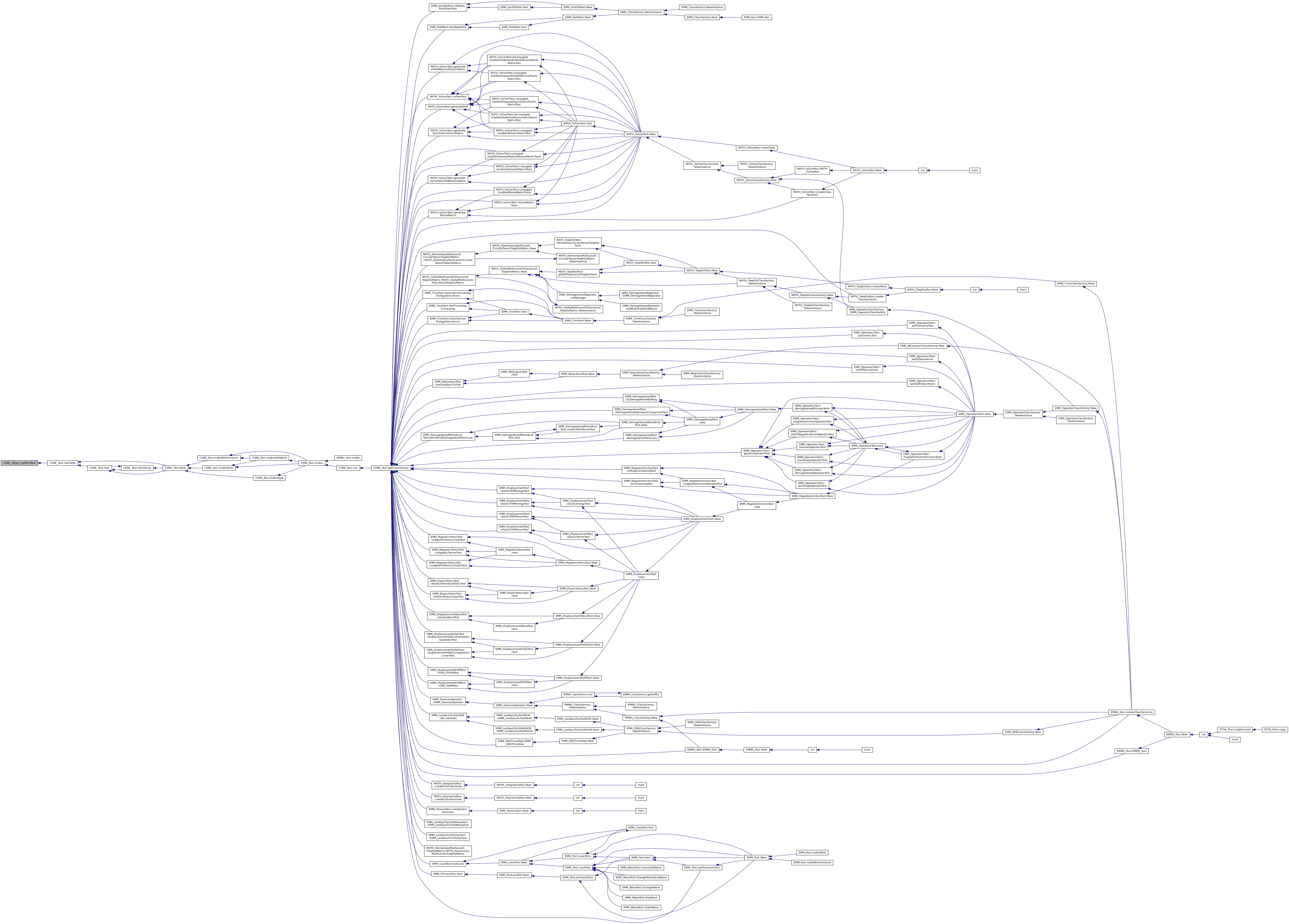
◆ getMinSInt()
|
inlinestaticinherited |
get the min value for tSInt type
- Returns
- the min value for tSInt type
Referenced by CORE_Test::testType().
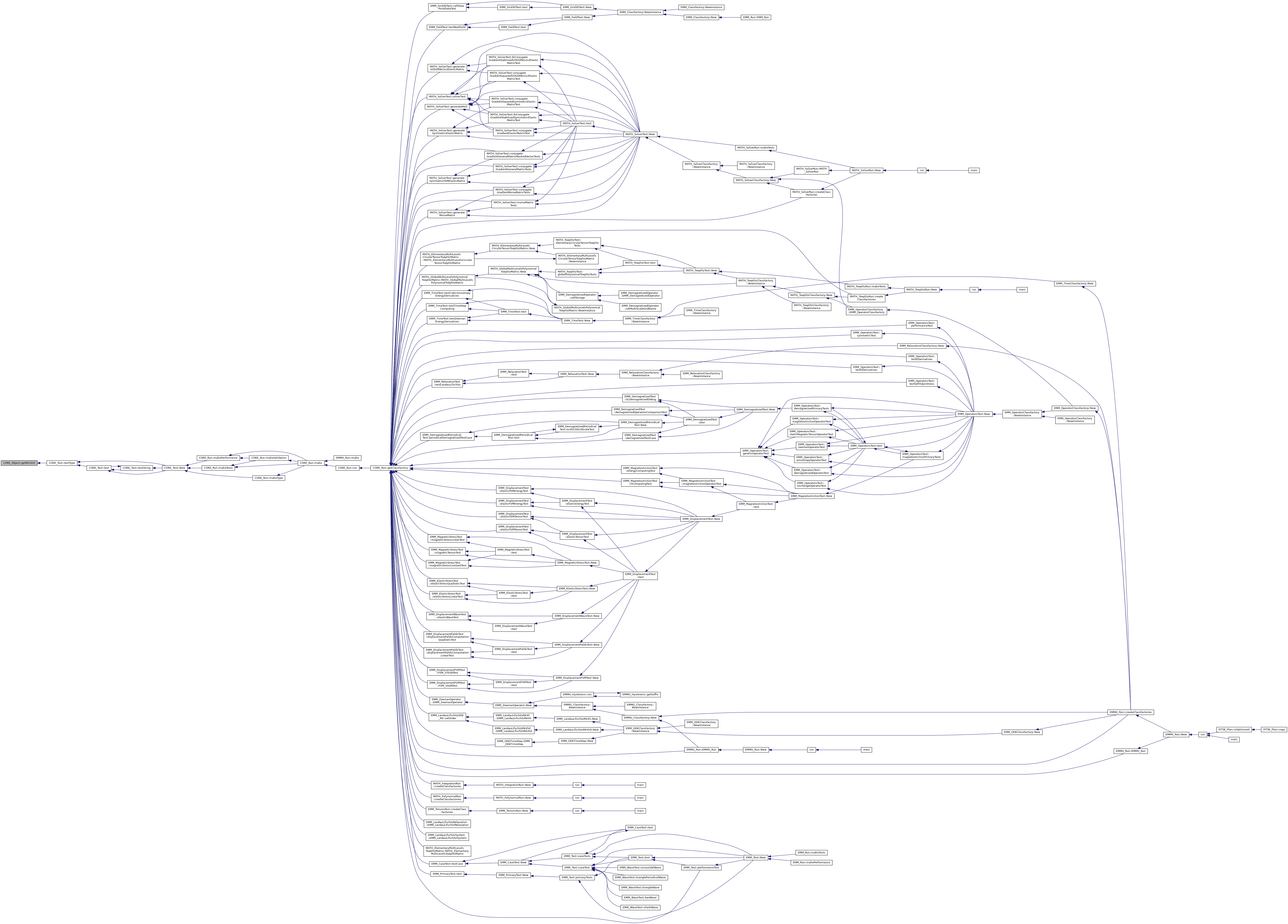
◆ getMinUChar()
|
inlinestaticinherited |
get the min value for tUChar type
- Returns
- the min value for tUChar type
Referenced by CORE_Test::testType().
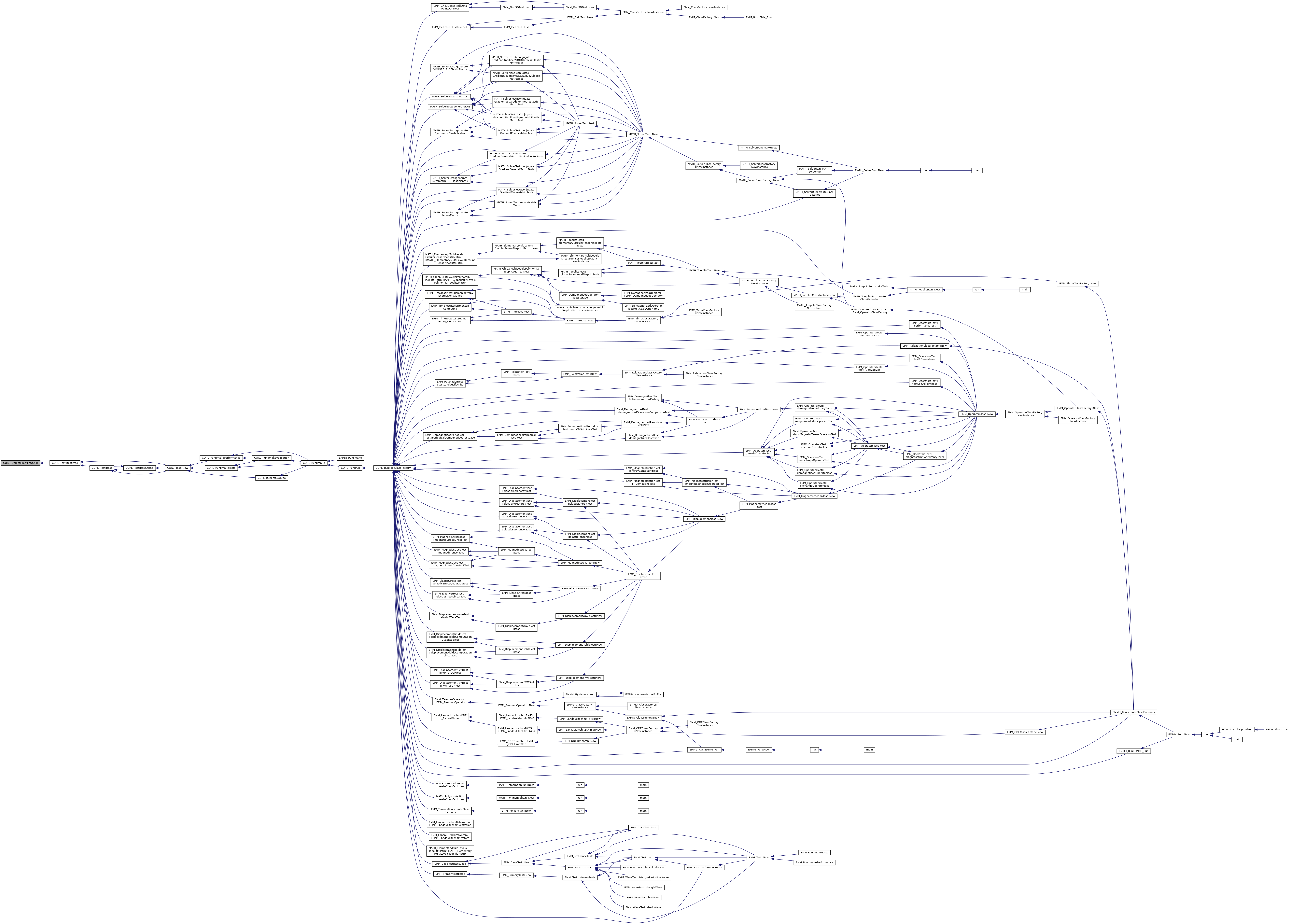
◆ getMinUIndex()
|
inlinestaticinherited |
get the min value for difference the array/vector indexing type
- Returns
- the min value for difference the array/vector indexing type
Referenced by CORE_Test::testType().
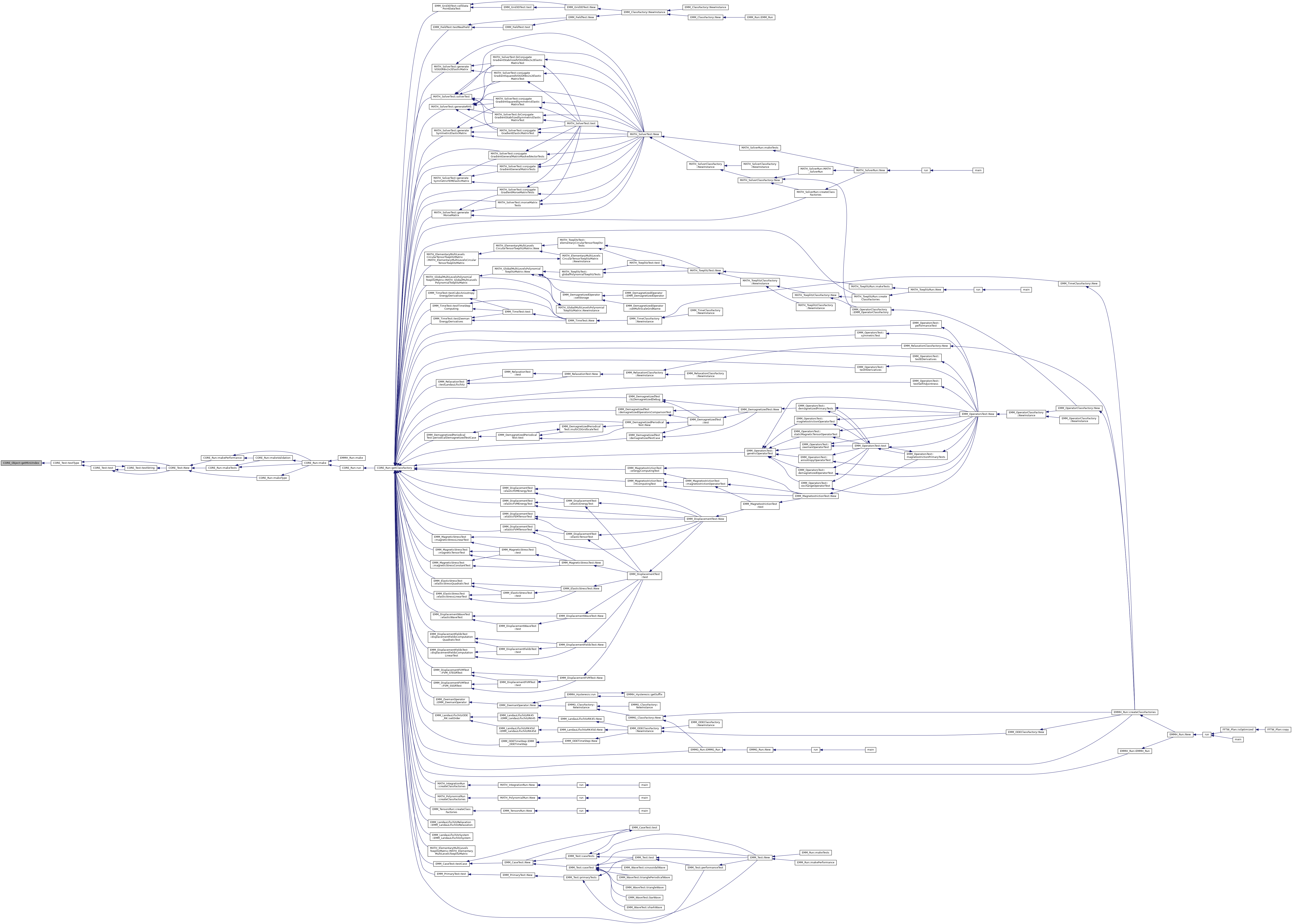
◆ getMinUInt()
|
inlinestaticinherited |
get the min value for tUInt type
- Returns
- the min value for tUInt type
Referenced by CORE_Test::testType().
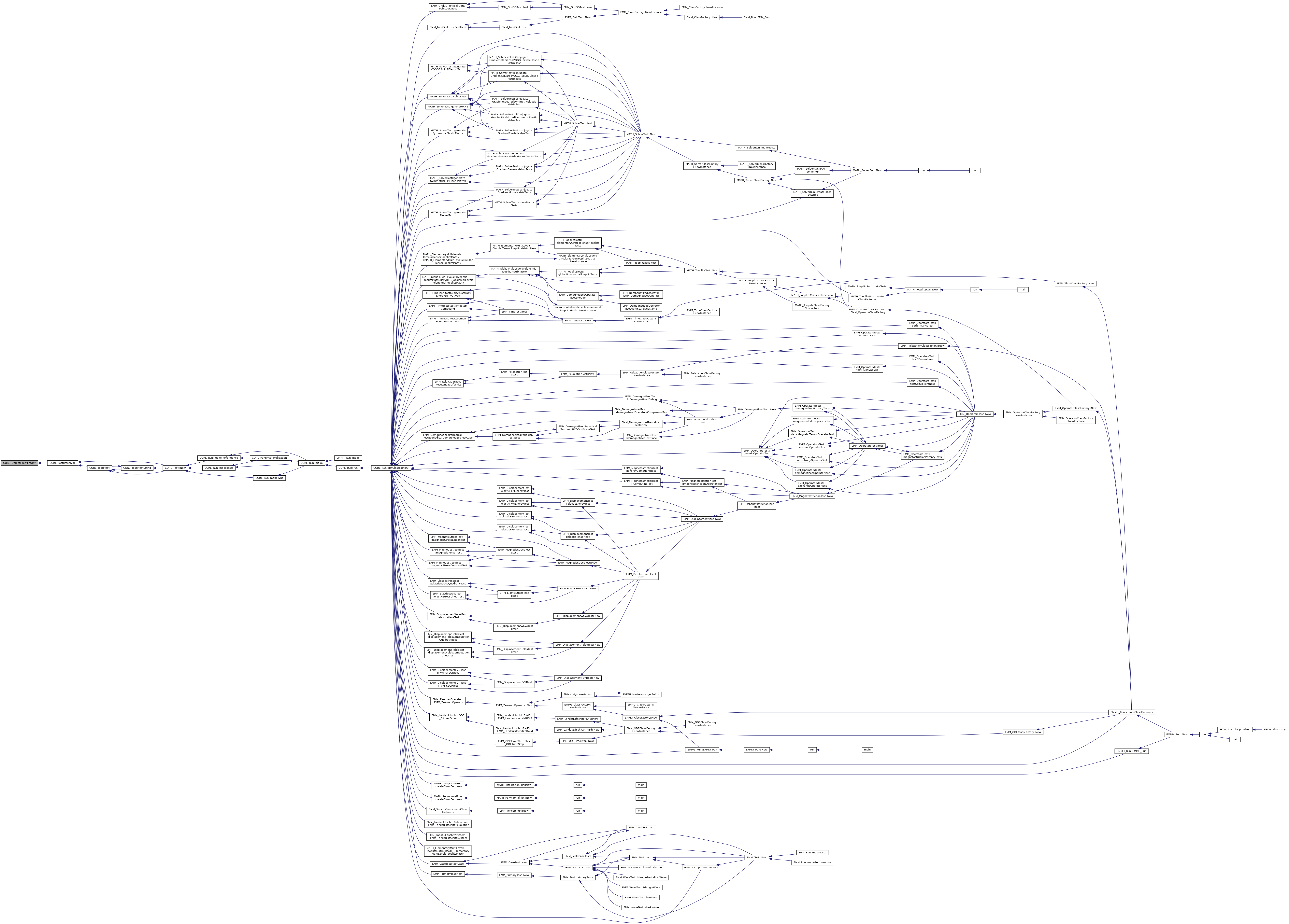
◆ getMinUInteger()
|
inlinestaticinherited |
get the min value for the unsigned integer type
- Returns
- the min value for the unsigned integer type
Referenced by CORE_Test::testType().

◆ getMinULInt()
|
inlinestaticinherited |
get the min value for tULInt type
- Returns
- the min value for tULInt type
Referenced by CORE_Test::testType().

◆ getMinULLInt()
|
inlinestaticinherited |
get the min value for tULLInt type
- Returns
- the min value for tULLInt type
Referenced by CORE_Test::testType().
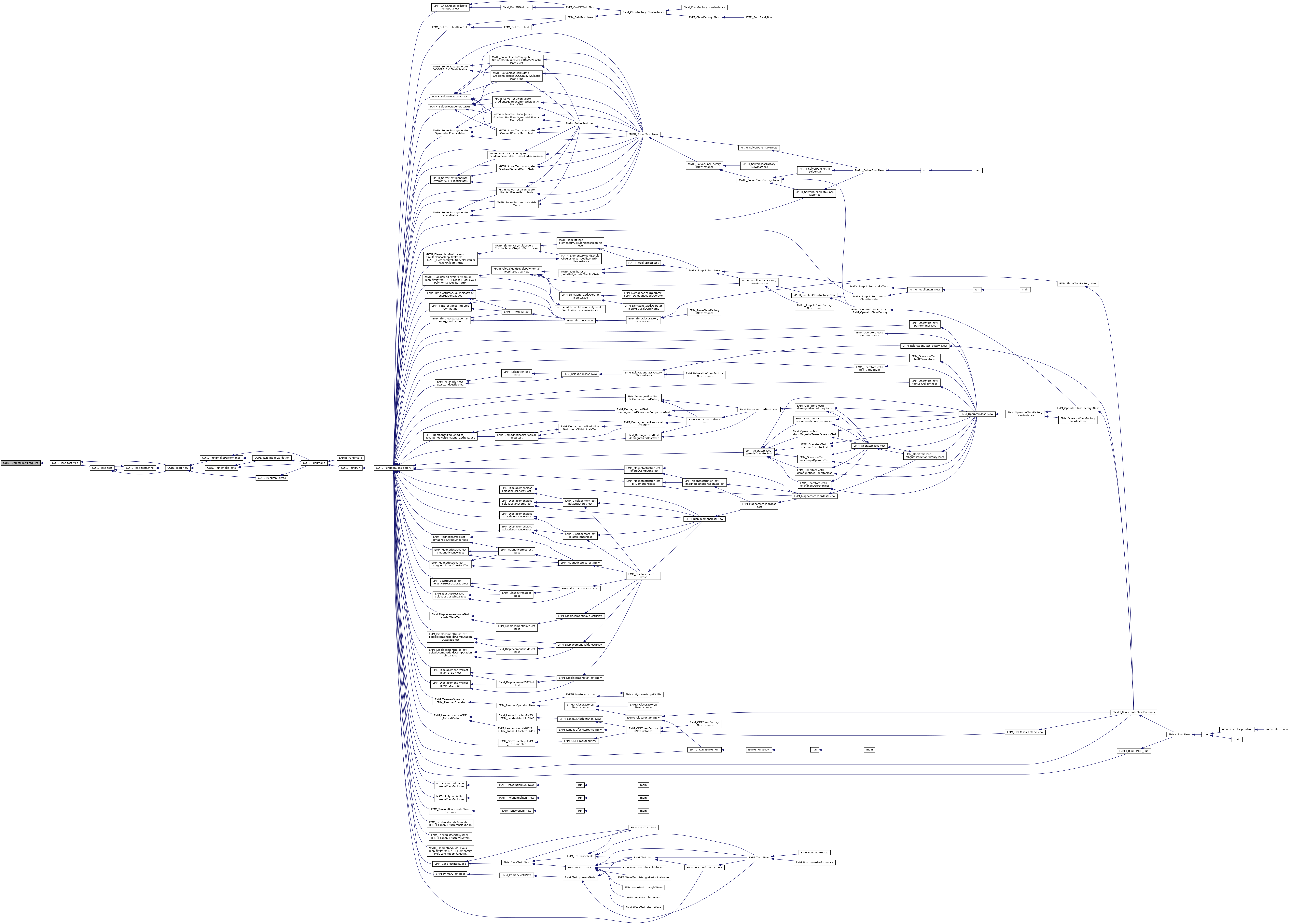
◆ getMinUSInt()
|
inlinestaticinherited |
get the min value for tUSInt type
- Returns
- the min value for tUSInt type
Referenced by CORE_Test::testType().
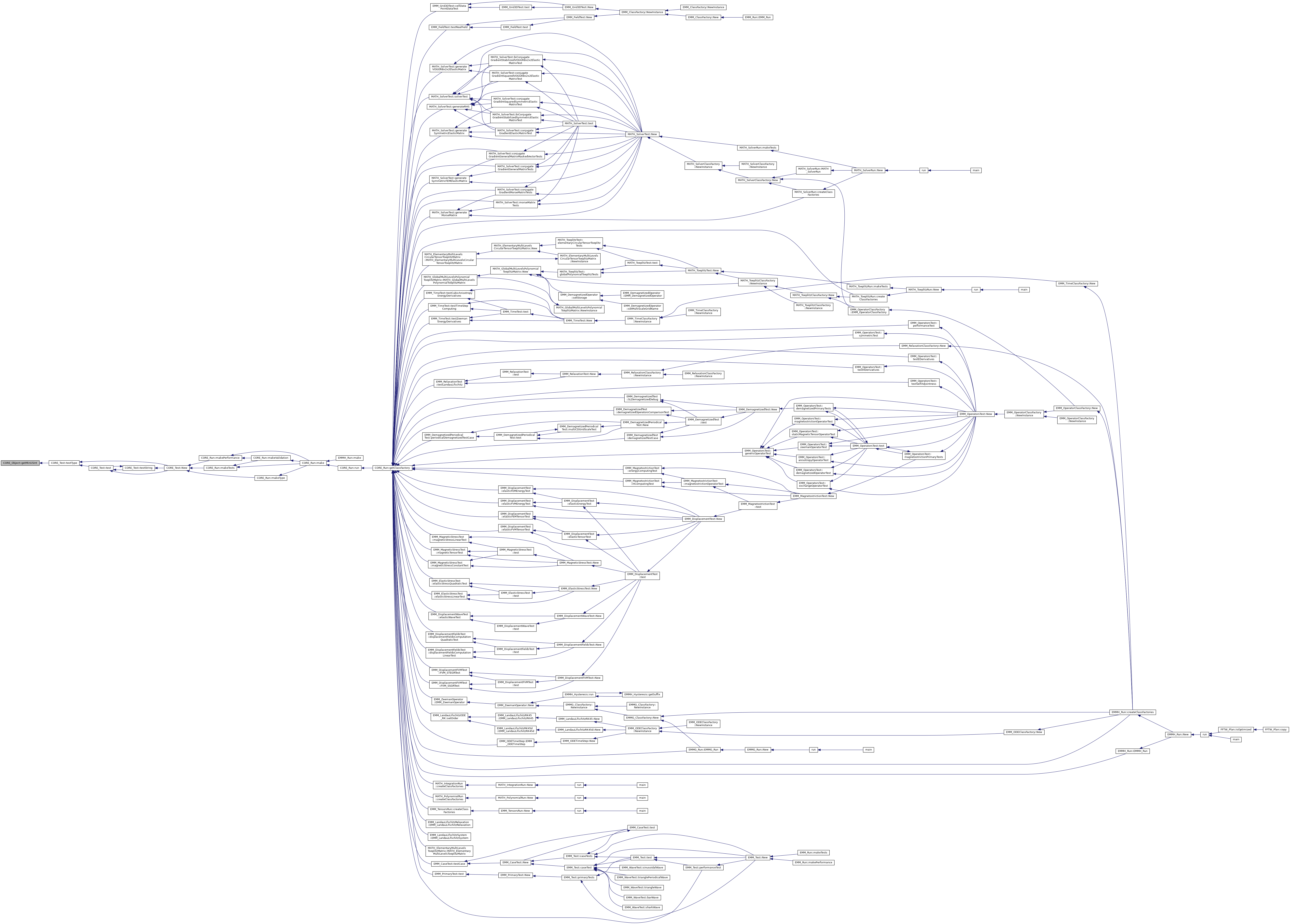
◆ getOut()
|
inlinestaticinherited |
◆ getPointerAddress()
|
inlineinherited |
return the identity string of the object
- Returns
- the identity string of the object
References CORE_Object::pointer2String().

◆ getRealEpsilon()
|
inlinestaticinherited |
get the eps which is the difference between 1 and the least value greater than 1 that is representable.
- Returns
- the eps which is the difference between 1 and the least value greater than 1 that is representable.
Referenced by MATH_P4::solveP4De(), and CORE_Test::testType().
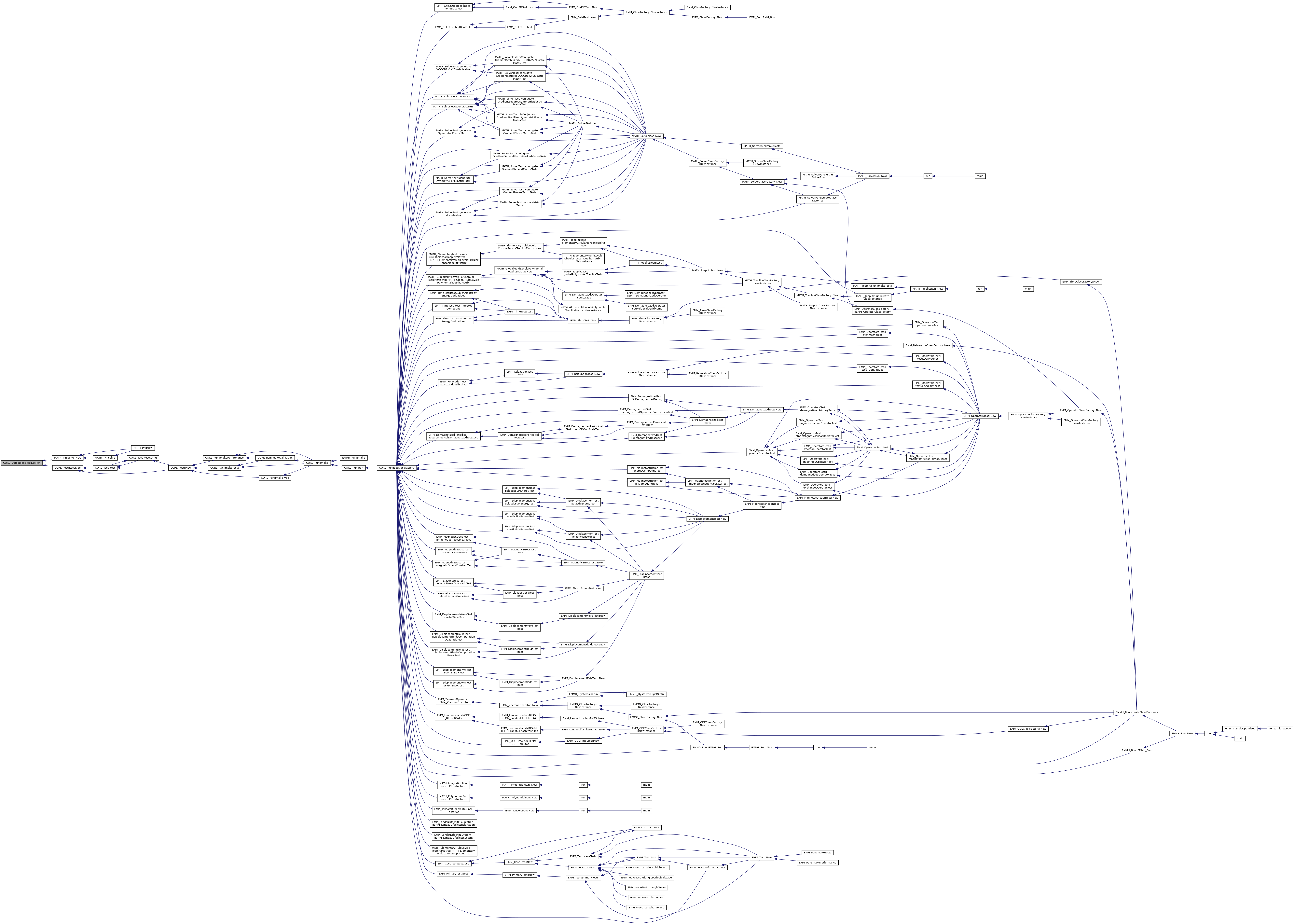
◆ getRealInfinity()
|
inlinestaticinherited |
get the infinity value
- Returns
- the inifinity value for the real type
Referenced by BrentFunction::BrentFunction(), EMM_OperatorsTest::compareDiscretizedData(), EMM_IterativeTimeStep::EMM_IterativeTimeStep(), EMM_SLElementaryDemagnetizedMatrix::Kxy(), NRFunction::NRFunction(), EMM_PolynomialInterpolationTimeStep::optimizeTimeFunction(), and CORE_Test::testType().
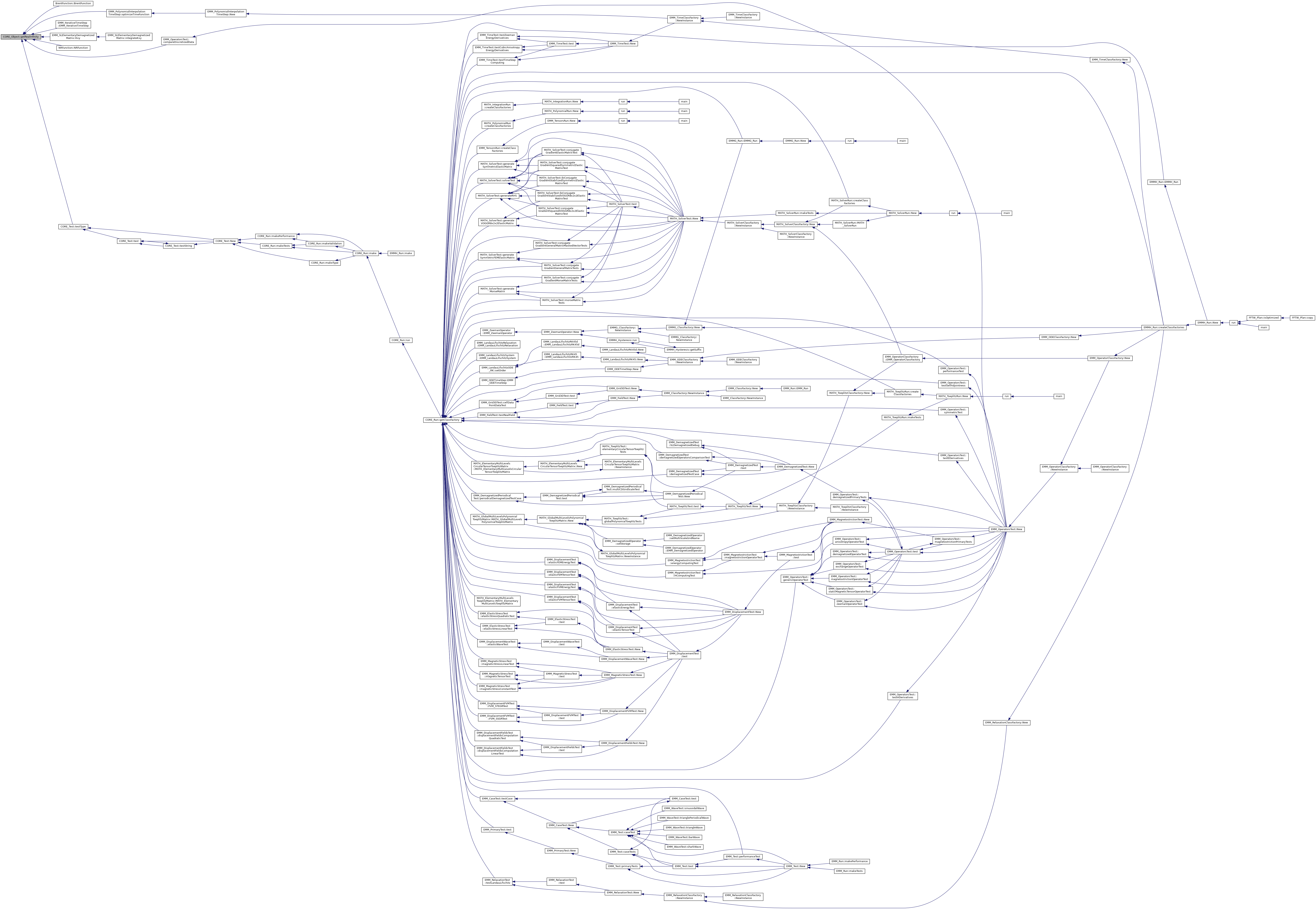
◆ getSharedPointer() [1/2]
|
inlineinherited |
get the shared pointer of this class into p
- Parameters
-
p : shared pointer of the class This
Referenced by CORE_Map< Key, Value >::getSharedPointer(), CORE_ArrayList< tString >::getSharedPointer(), EMM_Array< tCellFlag >::getSharedPointer(), CORE_Array< tCellFlag >::getSharedPointer(), CORE_MorseArray< tUChar >::getSharedPointer(), CORE_Vector< T >::getSharedPointer(), and CORE_Object::printObjectsInMemory().
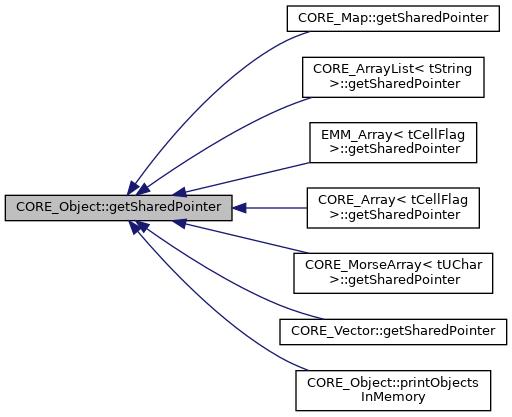
◆ getSharedPointer() [2/2]
|
inlineinherited |
get the shared pointer of this class into p
- Parameters
-
p : shared pointer of the class This
◆ getSize()
|
inline |
get the size
- Returns
- the size of the array
References mSize.
Referenced by add(), MATH_ElementaryMultiLevelsToeplitzMatrix::buildSpectralSpace(), MATH_ElementaryMultiLevelsCircularTensorToeplitzMatrix::buildSpectralSpace(), copy(), distance2(), fabs(), fitToSize(), FFTW_FFT::getValuesNumber(), multiply(), MATH_ElementaryMultiLevelsToeplitzMatrix::recoverCanonicalSpace(), MATH_GlobalMultiLevelsPolynomialToeplitzMatrix::recoverCanonicalSpace(), and MATH_MultiLevelsToeplitzMatrix::toString().
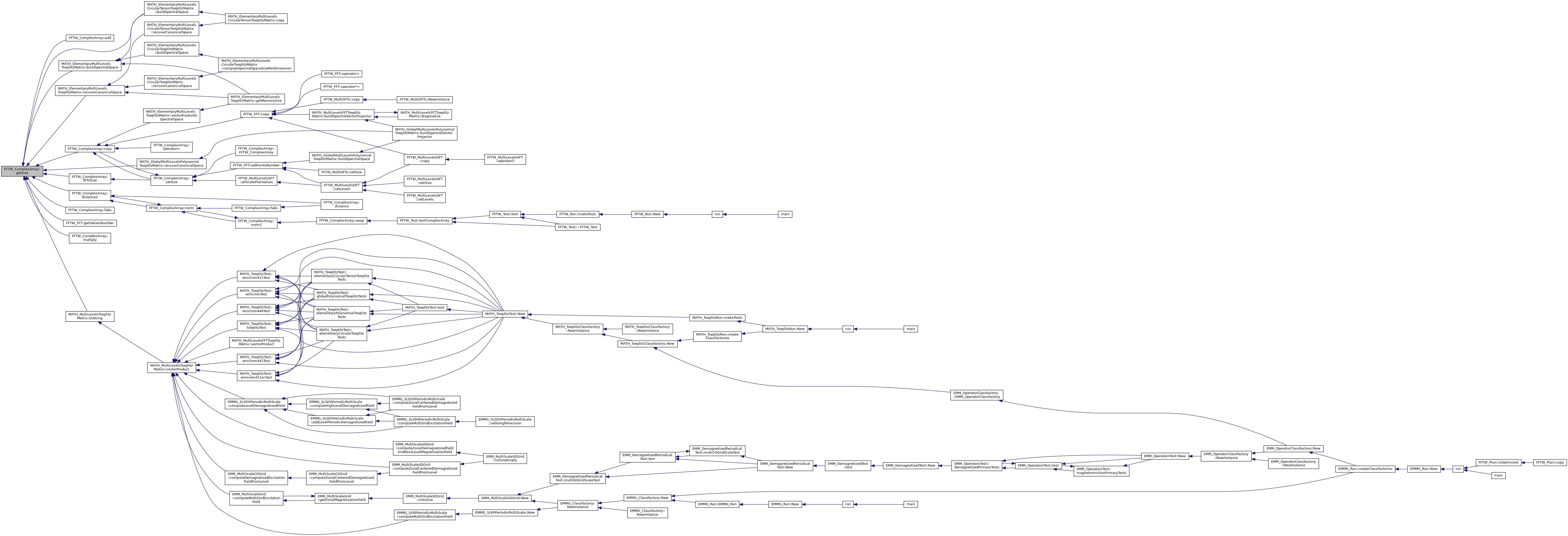
◆ getThread()
|
inlinestaticinherited |
get the profilier
- Returns
- the profiler
Referenced by MATH_MaskVector::add(), MATH_Vector::add(), EMM_DisplacementFEMOperator::addBoundaryElasticStress(), EMM_DisplacementFEMOperator::buildDataOnNeumannBoundaryFaces(), EMM_DisplacementFVMOperator::computeCineticEnergy(), EMM_DisplacementFVMOperator::computeElasticStress(), EMM_DisplacementFEMOperator::computeElasticStress(), EMM_DisplacementFVMOperator::computeElasticTensor(), EMM_DisplacementFEMOperator::computeElasticTensor(), EMM_StaticMagneticTensorOperator::computeEnergy(), EMM_CubicAnisotropyOperator::computeEnergy(), EMM_MagnetostrictionOperator::computeEnergy(), EMM_DisplacementOperator::computeEnergy(), EMM_AnisotropyOperator::computeEnergyWithMagneticExcitation(), EMM_DisplacementFVMOperator::computeEquilibriumMatrixDiagonalConditioner(), EMM_DisplacementFEMOperator::computeEquilibriumMatrixDiagonalConditioner(), EMM_FullExchangeOperator::computeMagneticExcitationField(), EMM_StaticMagnetostrictionOperator::computeMagneticExcitationField(), EMM_LinearAnisotropyOperator::computeMagneticExcitationField(), EMM_StaticMagneticTensorOperator::computeMagneticExcitationField(), EMM_CubicAnisotropyOperator::computeMagneticExcitationField(), EMM_MinimalExchangeOperator::computeMagneticExcitationField(), EMM_AnisotropyOperator::computeMagneticExcitationField(), EMM_MagnetostrictionOperator::computeMagneticExcitationField(), EMM_CubicAnisotropyOperator::computeMagneticExcitationFieldGradient(), EMM_AnisotropyOperator::computeMagneticExcitationFieldGradient(), EMM_DisplacementFVMOperator::computeMagneticStress(), EMM_DisplacementFEMOperator::computeMagneticStress(), EMM_OptimalTimeStep::computeOptimalTimeStep(), EMM_DisplacementFEMOperator::computeStressConstraintEnergy(), EMM_FullExchangeOperator::discretize(), EMM_MinimalExchangeOperator::discretize(), EMM_CondensedMassMatrix::discretize(), EMM_LinearAnisotropyOperator::discretize(), EMM_AnisotropyOperator::discretize(), EMM_DemagnetizedOperator::discretize(), EMMG_SLDemagnetizedOperator::discretize(), EMM_LandauLifschitzSystem::discretize(), MATH_Vector::divide(), MATH_MaskVector::dot(), MATH_Vector::dot(), EMM_4SymmetricTensors::doubleDot(), EMM_4Tensors::doubleDotCrossDoubleDotScalar(), EMM_4Tensors::doubleDotCrossProduct(), EMM_4Tensors::doubleDotCrossSquaredScalar(), EMM_4Tensors::doubleDotProduct(), MATH_Vector::init(), MATH_MaskVector::init(), EMM_LandauLifschitzODE_RK::integrateMagnetizationFieldAtTime(), EMM_DisplacementFVM_Interpolator::interpolateUAtVertices(), EMMG_SLDemagnetizedOperator::localAssembly(), EMM_DisplacementOperator::nullProjectionOnDirichletBoundary(), EMM_DisplacementOperator::periodicProjection(), EMM_2PackedSymmetricTensors::product(), EMM_CanonicalMassMatrix::product(), MATH_FullMatrix::product(), EMM_CondensedMassMatrix::product(), EMM_BlockMassMatrix::product(), MATH_MorseMatrix::product(), EMMG_SLDemagnetizedOperator::product(), EMM_DisplacementOperator::projectionOnDirichletBoundary(), EMM_LandauLifschitzSystem::resetOperatorsToInitialState(), EMM_DisplacementFVMOperator::setBoundaryFaceTypes(), FFTW_MultiDFTs::setFFT(), FFTW_MultiLevelsDFT::setFFT(), FFTW_MultiLevelsDFT::setLevels(), FFTW_MultiDFTs::setPlan(), FFTW_MultiLevelsDFT::setPlan(), EMM_CondensedMassMatrix::solve(), EMM_LandauLifschitzODE::solveODE(), EMM_4SymmetricTensors::squaredDoubleDot(), EMM_4Tensors::squaredDoubleDotCrossScalar(), EMM_4Tensors::squaredDoubleDotScalar(), EMM_CanonicalMassMatrix::symmetricDot(), EMM_CondensedMassMatrix::symmetricDot(), EMM_BlockMassMatrix::symmetricDot(), FFTW_Test::test(), MATH_SolverTest::test(), EMM_ODETest::testODE(), and EMM_Grid3D::updateLimitConditionOnPoints().

◆ getTypeName()
|
inlinestaticinherited |
◆ getValues() [1/2]
|
inline |
◆ getValues() [2/2]
|
inline |
◆ initArray() [1/2]
| void FFTW_ComplexArray::initArray | ( | const tReal & | f | ) |
init uniform value of f
- Parameters
-
f the uniform real value to copy
References mSize, mValues, OMP_GET_THREAD_ID, OMP_GET_THREADS_NUMBER, OMP_PARALLEL_PRIVATE_SHARED_DEFAULT, tFFTWComplex, tFFTWReal, tUIndex, and tUInteger.
Referenced by operator=(), setSize(), and MATH_ElementaryMultiLevelsToeplitzMatrix::vectorProductInSpectralSpace().
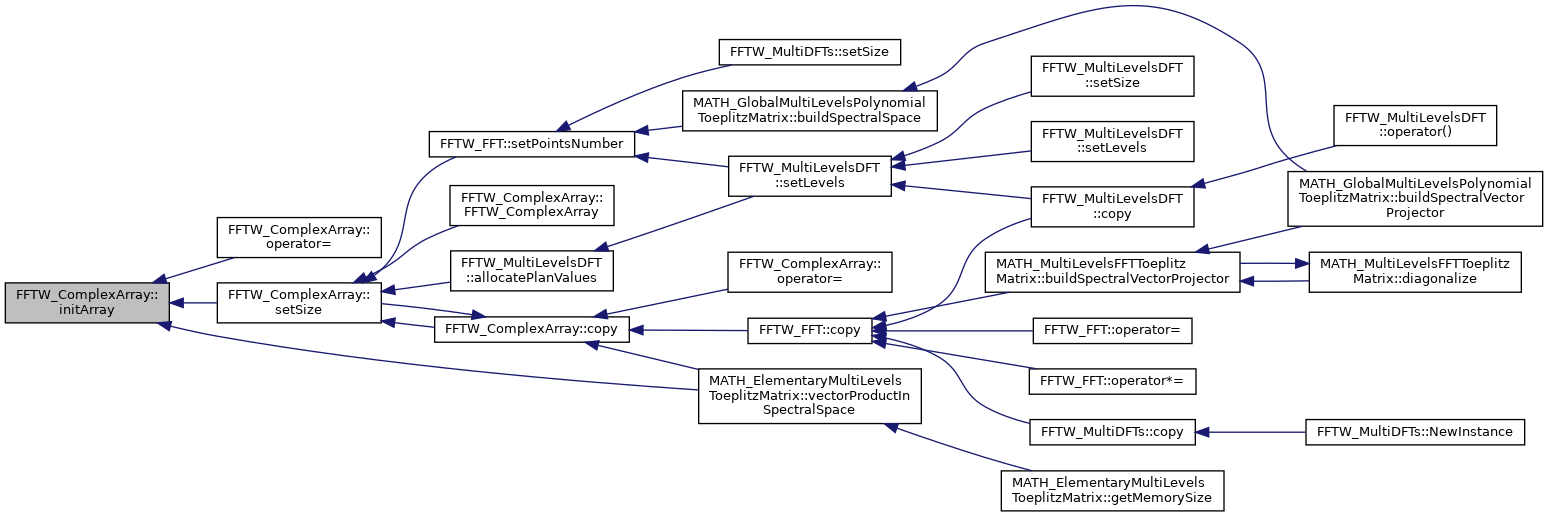
◆ initArray() [2/2]
| void FFTW_ComplexArray::initArray | ( | const tFFTWComplex & | f | ) |
init uniform value of f
- Parameters
-
f the uniform complex value to copy
References mSize, mValues, OMP_GET_THREAD_ID, OMP_GET_THREADS_NUMBER, OMP_PARALLEL_PRIVATE_SHARED_DEFAULT, tFFTWComplex, tUIndex, and tUInteger.
◆ is32Architecture()
|
inlinestaticinherited |
return true if the machine is a 32 bits machine
- Returns
- true is the computing is done in a 32 bits machine
References CORE_Object::pointer2String(), CORE_Object::printObjectsInMemory(), and tString.
Referenced by CORE_Test::testType().


◆ is64Architecture()
|
inlinestaticinherited |
return true if the machine is a 64 bits machine
- Returns
- true is the computing is done in a 64 bits machine
Referenced by EMM_VTK::getVTKType(), and CORE_Test::testType().
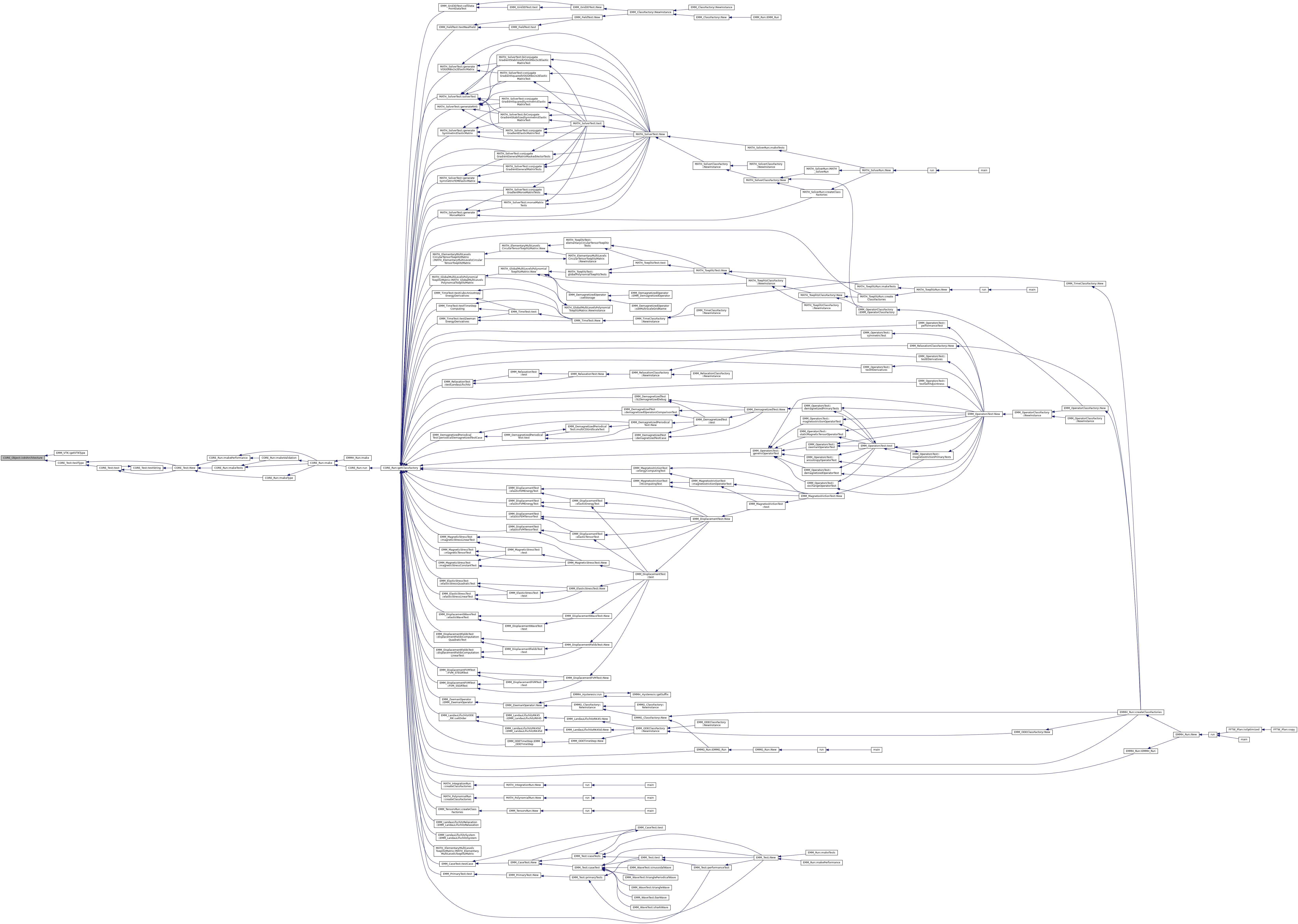
◆ isInstanceOf() [1/2]
|
inlineinherited |
test if the clas T is an instance of this class
- Returns
- true if the object is an instance of T
References null.
Referenced by MATH_ToeplitzTest::toeplitzTest().

◆ isInstanceOf() [2/2]
test if the object is an instance of className
- Parameters
-
name name of the class
- Returns
- true if the object is an instance of class Name
References CORE_Object::getIdentityString().

◆ isMemoryChecked()
|
inlinestaticinherited |
get if the memory checking is used
- Returns
- true: if the memory checking is used.
References CORE_Object::getClassName(), CORE_Object::mIsMemoryTesting, and tString.
Referenced by main().


◆ MatrixVectorProduct()
|
static |
matrix vector product Z:=alpha.Z+A*X
- Parameters
-
alpha multiplicator factor N size of the pointer A,X,Y A pointer to A vector values X pointer to X vector values Y pointer tor result values
References OMP_GET_THREAD_ID, OMP_GET_THREADS_NUMBER, OMP_PARALLEL_PRIVATE_SHARED_DEFAULT, tFFTWComplex, tUIndex, and tUInteger.
Referenced by swap(), and MATH_ElementaryMultiLevelsToeplitzMatrix::vectorProductInSpectralSpace().

◆ multiply() [1/3]
| void FFTW_ComplexArray::multiply | ( | const tFFTWReal & | s | ) |
multiply the real part of the elements of the array by the scalar s
- Parameters
-
s the scalar factor
References mSize, OMP_GET_THREAD_ID, OMP_GET_THREADS_NUMBER, OMP_PARALLEL_PRIVATE_SHARED_DEFAULT, tFFTWComplex, tUIndex, and tUInteger.
Referenced by operator*=(), operator/=(), and swap().

◆ multiply() [2/3]
| void FFTW_ComplexArray::multiply | ( | const tFFTWComplex & | s | ) |
multiply the elements of the array by the complex s
- Parameters
-
s the complex factor
References mSize, OMP_GET_THREAD_ID, OMP_GET_THREADS_NUMBER, OMP_PARALLEL_PRIVATE_SHARED_DEFAULT, tFFTWComplex, tFFTWReal, tUIndex, and tUInteger.
◆ multiply() [3/3]
| void FFTW_ComplexArray::multiply | ( | const FFTW_ComplexArray & | s | ) |
make the product of the elements of the array by the corresponding element of the complex array s
- Parameters
-
s the complex array
References getSize(), mSize, OMP_GET_THREAD_ID, OMP_GET_THREADS_NUMBER, OMP_PARALLEL_PRIVATE_SHARED_DEFAULT, tFFTWComplex, tFFTWReal, CORE_Integer::toString(), tUIndex, and tUInteger.

◆ New()
|
inlinestatic |
return a FFTW_ComplexArray shared pointer
- Returns
- the associated shared pointer to this
References FFTW_ComplexArray().
Referenced by FFTW_ClassFactory::NewInstance().


◆ norm()
|
inline |
compute the norm
- Returns
- the norm ||this||
References distance2(), norm2(), and tFFTWReal.
Referenced by distance2(), fabs(), and norm2().


◆ norm2()
| tFFTWReal FFTW_ComplexArray::norm2 | ( | ) | const |
compute the square of norm
- Returns
- the norm ||this||^2
References mSize, mValues, norm(), OMP_GET_THREAD_ID, OMP_GET_THREADS_NUMBER, OMP_PARALLEL_PRIVATE_SHARED_DEFAULT_REDUCTION, tFFTWComplex, tFFTWReal, tUIndex, and tUInteger.
Referenced by norm(), and swap().


◆ operator()() [1/2]
get the value for reading & writing
- Parameters
-
i index of the element j index of the value to get: - if j=0 return the real value of the complex
- if j=1 return the imaginary value of the complex
- Returns
- the real value at index i.
References CORE_Integer::toString().

◆ operator()() [2/2]
get the value for reading only
- Parameters
-
i index of the element j index of the value to get: - if j=0 return the real value of the complex
- if j=1 return the imaginary value of the complex
- Returns
- the real value at index i.
References CORE_Integer::toString().

◆ operator*=() [1/3]
|
inline |
multiply the array by s
- Parameters
-
s the multiplicator factor
- Returns
- this
References multiply().

◆ operator*=() [2/3]
|
inline |
multiply the array by s
- Parameters
-
s the multiplicator factor
- Returns
- this
References multiply().

◆ operator*=() [3/3]
|
inline |
make the product term by term
- Parameters
-
s the multiplicator complex array [this]_i=[this]_i*Y_i
- Returns
- this
References multiply().

◆ operator+=() [1/3]
|
inline |
add s to the array
- Parameters
-
s the adding value
- Returns
- this
References add().

◆ operator+=() [2/3]
|
inline |
add s to the array
- Parameters
-
s the adding value
- Returns
- this
References add().

◆ operator+=() [3/3]
|
inline |
add s to the array
- Parameters
-
s the adding value
- Returns
- this
References add().

◆ operator-=()
|
inline |
sub s to the array
- Parameters
-
s the sub value
- Returns
- this
References add(), allocate(), desallocate(), and tUIndex.

◆ operator/=()
|
inline |
◆ operator=() [1/7]
|
inline |
copy the values of the complex array
- Parameters
-
s the complex array to copy
- Returns
- this
References copy().

◆ operator=() [2/7]
|
inline |
copy the values of the tComplex array
- Parameters
-
s the complex array to copy
References copy().

◆ operator=() [3/7]
|
inline |
copy only the real part to s
- Parameters
-
s the real array
- Returns
- this
References copy().

◆ operator=() [4/7]
|
inline |
copy only the real part to s
- Parameters
-
s the real array
- Returns
- this
References copy().

◆ operator=() [5/7]
|
inline |
copy only the real part to s
- Parameters
-
s the real array
- Returns
- this
References copy().

◆ operator=() [6/7]
|
inline |
init uniform value
- Parameters
-
s the uniform value
- Returns
- this
References initArray().

◆ operator=() [7/7]
|
inline |
init uniform value
- Parameters
-
s the uniform value
- Returns
- this
References initArray().

◆ operator[]() [1/2]
|
inline |
get the value for reading & writing
- Parameters
-
i index of the element
- Returns
- the complex at index i
References CORE_Integer::toString().

◆ operator[]() [2/2]
|
inline |
get the value for reading only
- Parameters
-
i index of the element
- Returns
- the complex at index i
References CORE_Integer::toString().

◆ out()
|
inlinestaticinherited |
get the output
- Returns
- the output stream
Referenced by EMM_Matter::adimensionize(), EMM_DisplacementFVMOperator::backup(), EMM_DisplacementOperator::backup(), MATH_ElementaryMultiLevelsToeplitzMatrix::buildSpectralVectorProjector(), EMM_Test::caseTest(), EMM_Test::caseTests(), EMM_MatterField::computeAnisotropyDirectionsField(), EMM_OptimalTimeStep::computeOptimalTimeStep(), MATH_MultiLevelsToeplitzMatrix::copy(), CORE_Exception::CORE_Exception(), EMM_MatterField::createAnisotropyOperator(), CORE_Run::createIO(), EMM_ElementaryTest::defaultBackupTest(), EMM_ElementaryTest::defaultTest(), MATH_MultiLevelsFFTToeplitzMatrix::diagonalize(), EMM_DisplacementFVMOperator::discretize(), EMM_MagnetostrictionOperator::discretize(), EMM_DisplacementFEMOperator::discretize(), EMM_4SymmetricTensors::doubleDot(), EMM_4Tensors::doubleDotCrossDoubleDotScalar(), EMM_TensorsTest::doubleDotCrossDoubleDotScalarTests(), EMM_4Tensors::doubleDotCrossProduct(), EMM_TensorsTest::doubleDotCrossProductTests(), EMM_4Tensors::doubleDotCrossSquaredScalar(), EMM_TensorsTest::doubleDotCrossSquaredScalarTests(), EMM_4Tensors::doubleDotProduct(), EMM_TensorsTest::doubleDotProductTests(), EMM_DisplacementWaveTest::elasticWaveTest(), EMM_Test::elementaryTests(), FFTW_Test::fftwTutorial(), MATH_IntegrationTest::gaussLegendreTest(), EMM_MagnetostrictionTest::HComputingTest(), EMM_DemagnetizedPeriodicalTest::HTest(), EMMH_HysteresisTest::hysteresisDefaultCycleTest(), EMM_TensorsTest::initializationTests(), EMM_MultiScaleGrid::initialize(), EMM_MultiScaleSDGrid::initialize(), EMM_MatterField::loadFromANIFile(), EMM_AnisotropyDirectionsField::loadFromFile(), EMM_Matter::loadFromFile(), EMM_Grid3D::loadFromGEOFile(), EMM_MatterField::loadFromLOCFile(), EMM_Array< tCellFlag >::loadFromStream(), EMM_Matter::loadFromStream(), EMM_Matter::loadMattersFromFile(), EMM_Run::loadSystemFromOptions(), EMM_ElementaryTest::magnetostrictionBackupTest(), CORE_Run::make(), EMMH_Run::makeHysteresis(), EMM_Run::makeRun(), CORE_Run::makeType(), EMM_ElementaryTest::optionsTest(), MATH_PolynomialTest::P4Tests(), EMM_Test::primaryTests(), EMM_LandauLifschitzSystem::printLog(), CORE_Run::printOptions(), EMM_2PackedSymmetricTensors::product(), EMMG_SLDemagnetizedOperator::projectionOnSpectralSpace(), CORE_Run::readOptionsFromCommandLine(), CORE_Test::readVectorTest(), EMM_DemagnetizedPeriodicalTest::relaxationTest(), EMM_DisplacementFVMOperator::restore(), EMM_DisplacementOperator::restore(), EMM_Input::restoreBackup(), EMMH_Hysteresis::run(), EMM_Output::save(), EMM_AnisotropyDirectionsField::saveToFile(), EMM_MatterField::saveToFile(), EMM_Grid3D::saveToGEOFile(), CORE_IOTest::searchTest(), EMMH_Hysteresis::setInitialMagnetizationField(), MATH_MultiLevelsToeplitzMatrix::setLevels(), EMM_4SymmetricTensors::squaredDoubleDot(), EMM_4Tensors::squaredDoubleDotCrossScalar(), EMM_TensorsTest::squaredDoubleDotCrossScalarTests(), EMM_4Tensors::squaredDoubleDotScalar(), EMM_TensorsTest::squaredDoubleDotScalarTests(), EMM_TensorsTest::squaredDoubleDotTests(), EMM_MatterTest::testAdimensionize(), EMM_MatterTest::testANIFile(), CORE_Test::testComplex(), CORE_Test::testDateWeek(), FFTW_Test::testDFT(), EMM_MatterTest::testIO(), EMM_ODETest::testODE(), CORE_Test::testOut(), CORE_Test::testReal(), EMM_FieldTest::testRealArray(), EMM_Grid3DTest::testSegment(), EMM_Grid3DTest::testThinSheet(), CORE_Test::testTime(), CORE_Test::testType(), MATH_FullMatrix::toString(), EMM_DemagnetizedPeriodicalTest::xyPeriodicalCubeSDGTest(), and EMM_DemagnetizedPeriodicalTest::xyPeriodicalSheetSDGTest().

◆ pointer2String()
|
staticinherited |
return the string representation of a pointer
- Parameters
-
obj : oject to get the string pointer
- Returns
- the string pointer of the object
References tString.
Referenced by CORE_Object::CORE_Object(), CORE_Object::getIdentityString(), CORE_Object::getPointerAddress(), CORE_Object::is32Architecture(), and CORE_Object::~CORE_Object().

◆ printObjectsInMemory() [1/2]
|
staticinherited |
print object in memory
- Parameters
-
f : output to print the objects in memory
References CORE_Object::getIdentityString(), CORE_Object::getSharedPointer(), CORE_Object::mIsMemoryTesting, CORE_Object::mObjects, and tInteger.

◆ printObjectsInMemory() [2/2]
|
inlinestaticinherited |
print object in memory in the standart output
Referenced by CORE_Object::is32Architecture(), and main().
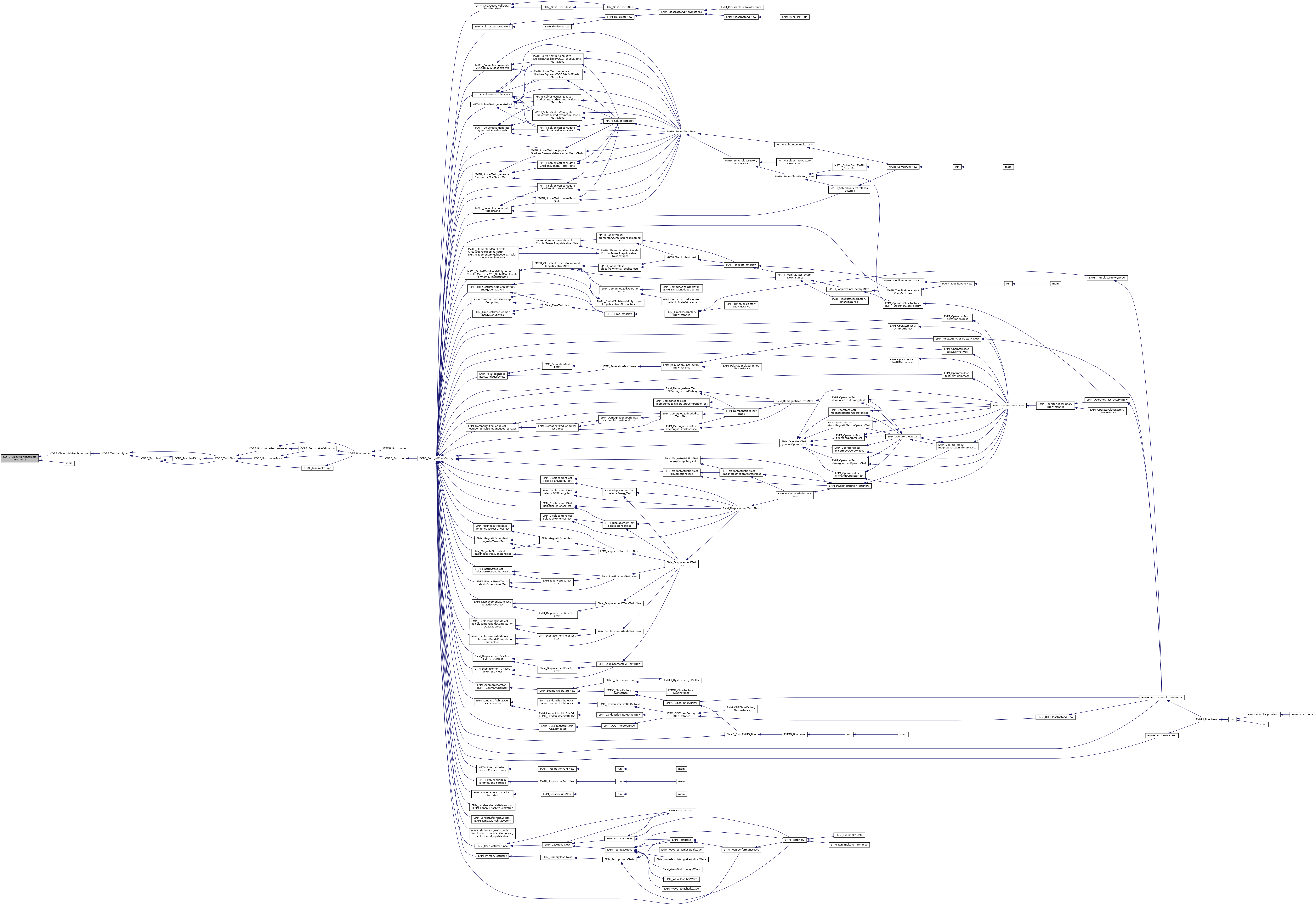
◆ resetOut()
|
inlinestaticinherited |
◆ resetThread()
|
inlinestaticinherited |
◆ setIsMemoryChecked()
|
inlinestaticinherited |
set if the memory checking is used
- Parameters
-
v : true to check memory
Referenced by main().

◆ setOut()
|
inlinestaticinherited |
◆ setSize()
|
inline |
set size of the array
- Parameters
-
n sze of the array
References allocate(), copy(), fitToSize(), initArray(), tFFTWComplex, tReal, and tUIndex.
Referenced by FFTW_MultiLevelsDFT::allocatePlanValues(), copy(), FFTW_ComplexArray(), and FFTW_FFT::setPointsNumber().

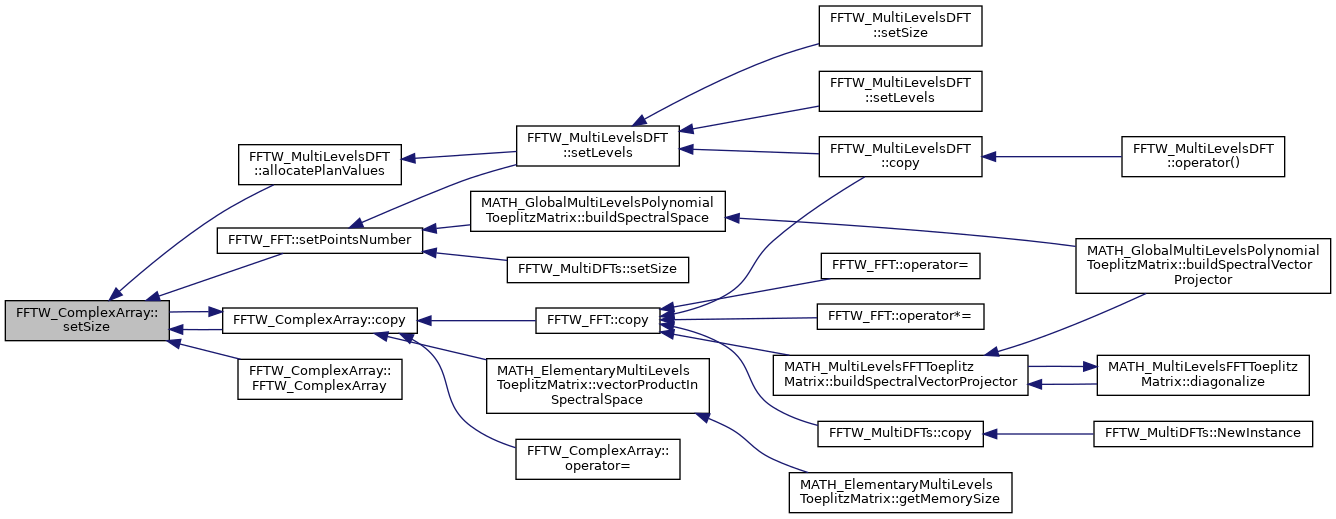
◆ setThis()
|
inlineprotectedinherited |
set this weak shared pointer called toDoAfterThis setting method
- Parameters
-
p : shared pointer of the class This
References CORE_Object::toDoAfterThisSetting().

◆ setThread()
|
inlinestaticinherited |
set the thread
- Parameters
-
thread the shared pointer to the thread
References null.
Referenced by EMM_Run::EMM_Run(), EMM_TensorsRun::EMM_TensorsRun(), and MATH_SolverRun::MATH_SolverRun().

◆ setValue()
|
inline |
set the value at index
- Parameters
-
index index of the array to set x real part to set y imaginary part to set
References tFFTWComplex.
Referenced by FFTW_Test::testComplexArray().

◆ setValuesByReference()
|
inline |
set the the values by reference
- Parameters
-
n size of the array array value of the array
this array will not be deleted at the deleting of the class This.
References desallocate().

◆ SP_OBJECT()
|
private |
◆ swap()
swap the lines i & j
- Parameters
-
i : the element to swap j the element to swap
References add(), MatrixVectorProduct(), multiply(), norm2(), tFFTWComplex, tFFTWReal, and tUIndex.
Referenced by FFTW_Test::testComplexArray().


◆ toDoAfterThisSetting()
|
inlineprotectedvirtualinherited |
method called after setThis() method this method can oly be called once.
Reimplemented in EMM_DisplacementOperator, EMM_DisplacementFVMOperator, EMM_GaussLegendreRelaxation, EMM_GradGaussLegendreRelaxation, and EMM_Object.
Referenced by CORE_Object::setThis().

◆ toString()
|
virtual |
to string
- Returns
- the string representation of the array
Reimplemented from CORE_Object.
References mSize, mValues, tFFTWComplex, FFTW_Complex::toString(), tString, and tUIndex.
Referenced by distance().


Member Data Documentation
◆ BACKWARD
|
staticinherited |
Referenced by FFTW_FFT::setFFT().
◆ FORWARD
|
staticinherited |
◆ mCapacity
|
private |
Referenced by allocate(), copy(), desallocate(), FFTW_ComplexArray(), fitToSize(), and getCapacity().
◆ mIsPrivateAllocated
|
private |
Referenced by allocate(), desallocate(), and FFTW_ComplexArray().
◆ mSize
|
private |
Referenced by add(), allocate(), copy(), desallocate(), distance2(), fabs(), FFTW_ComplexArray(), getSize(), initArray(), multiply(), norm2(), and toString().
◆ mValues
|
private |
Referenced by allocate(), copy(), desallocate(), distance2(), fabs(), FFTW_ComplexArray(), getValues(), initArray(), norm2(), and toString().
The documentation for this class was generated from the following files:






 1.8.13
1.8.13